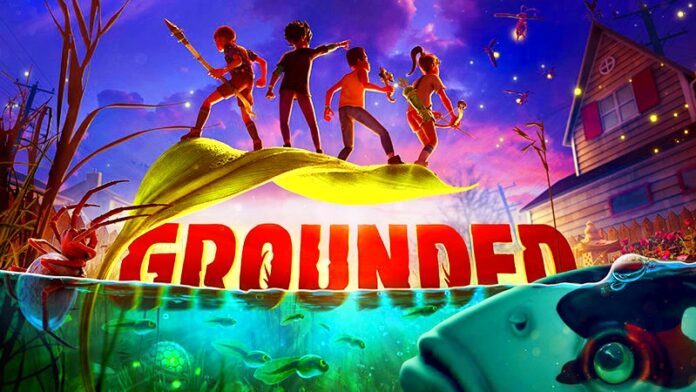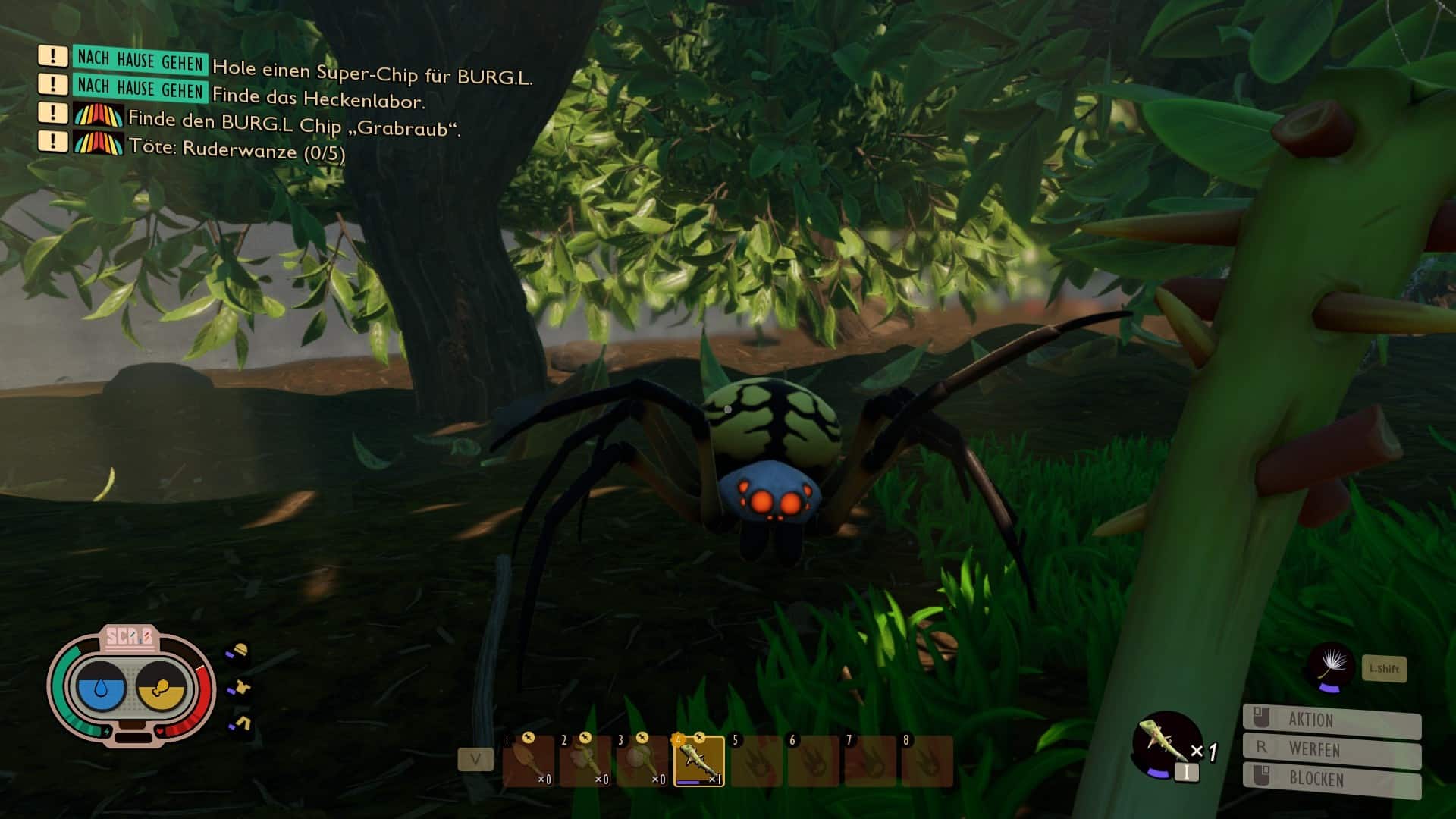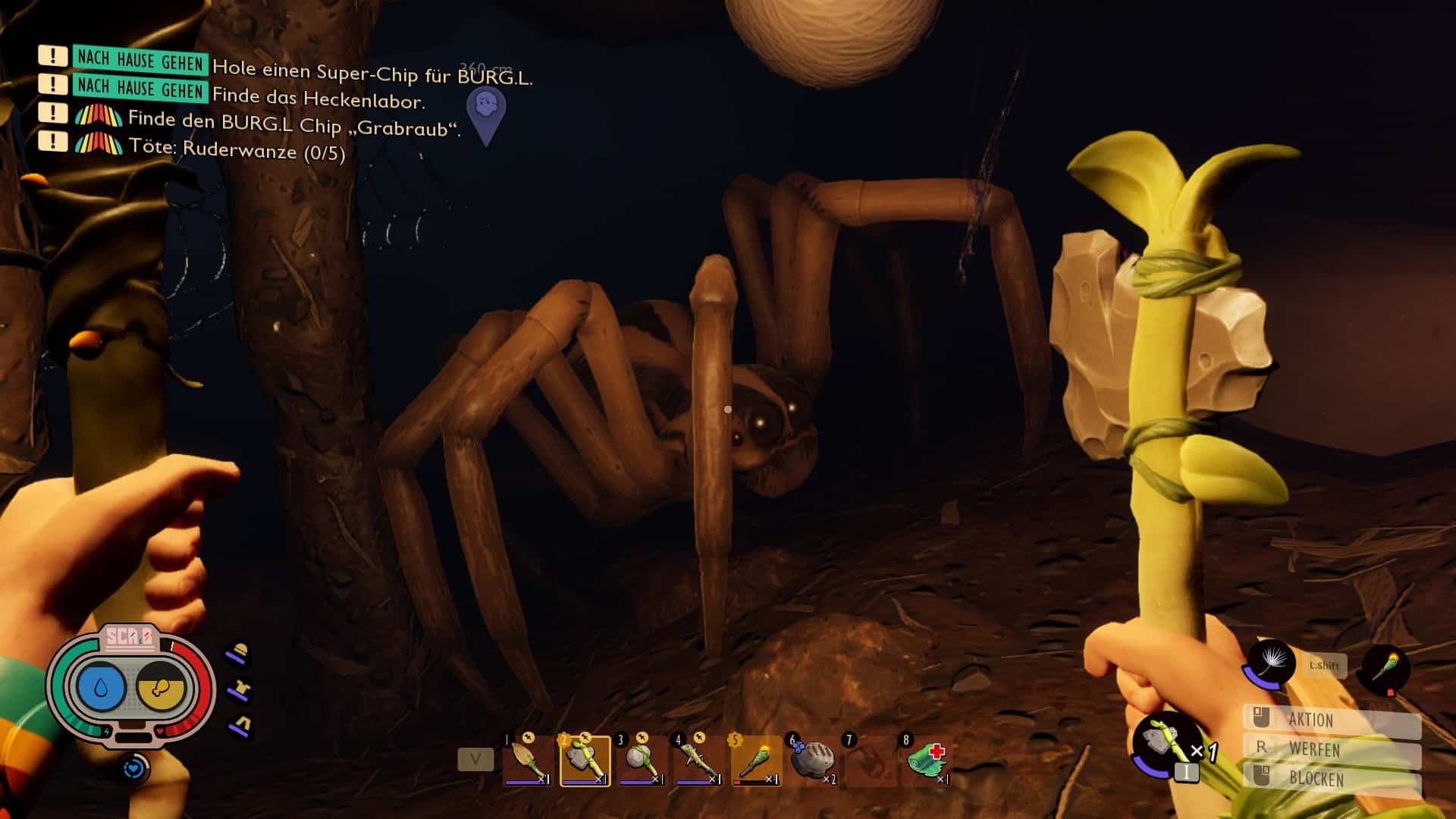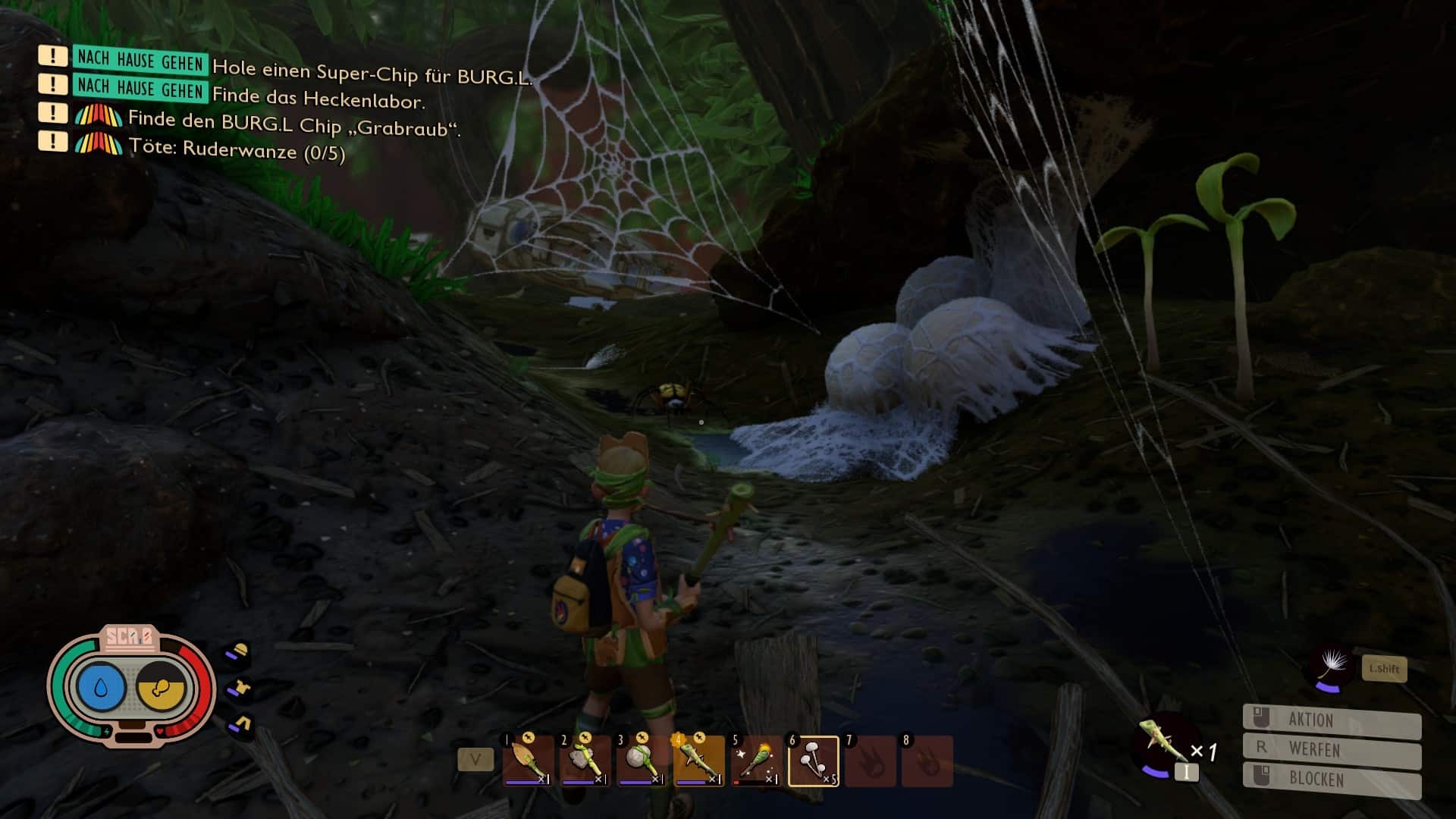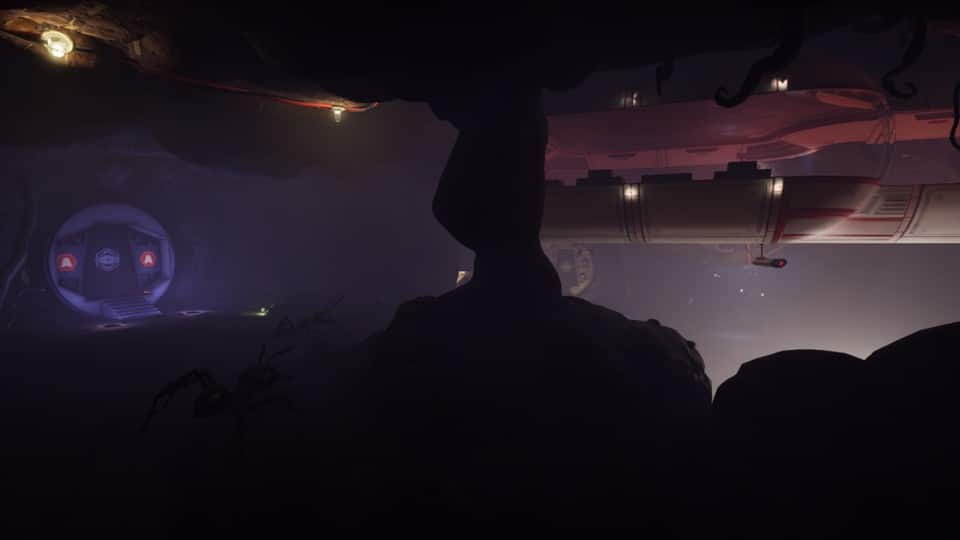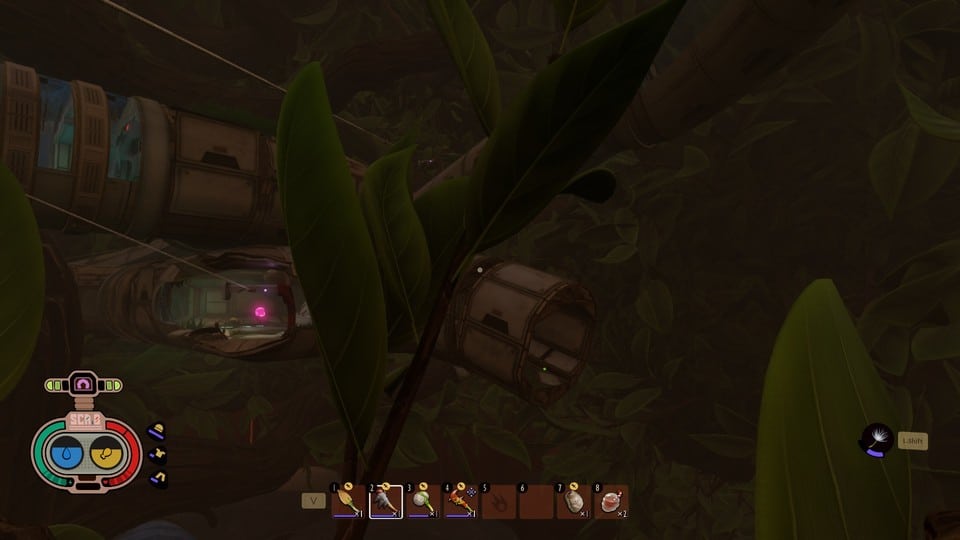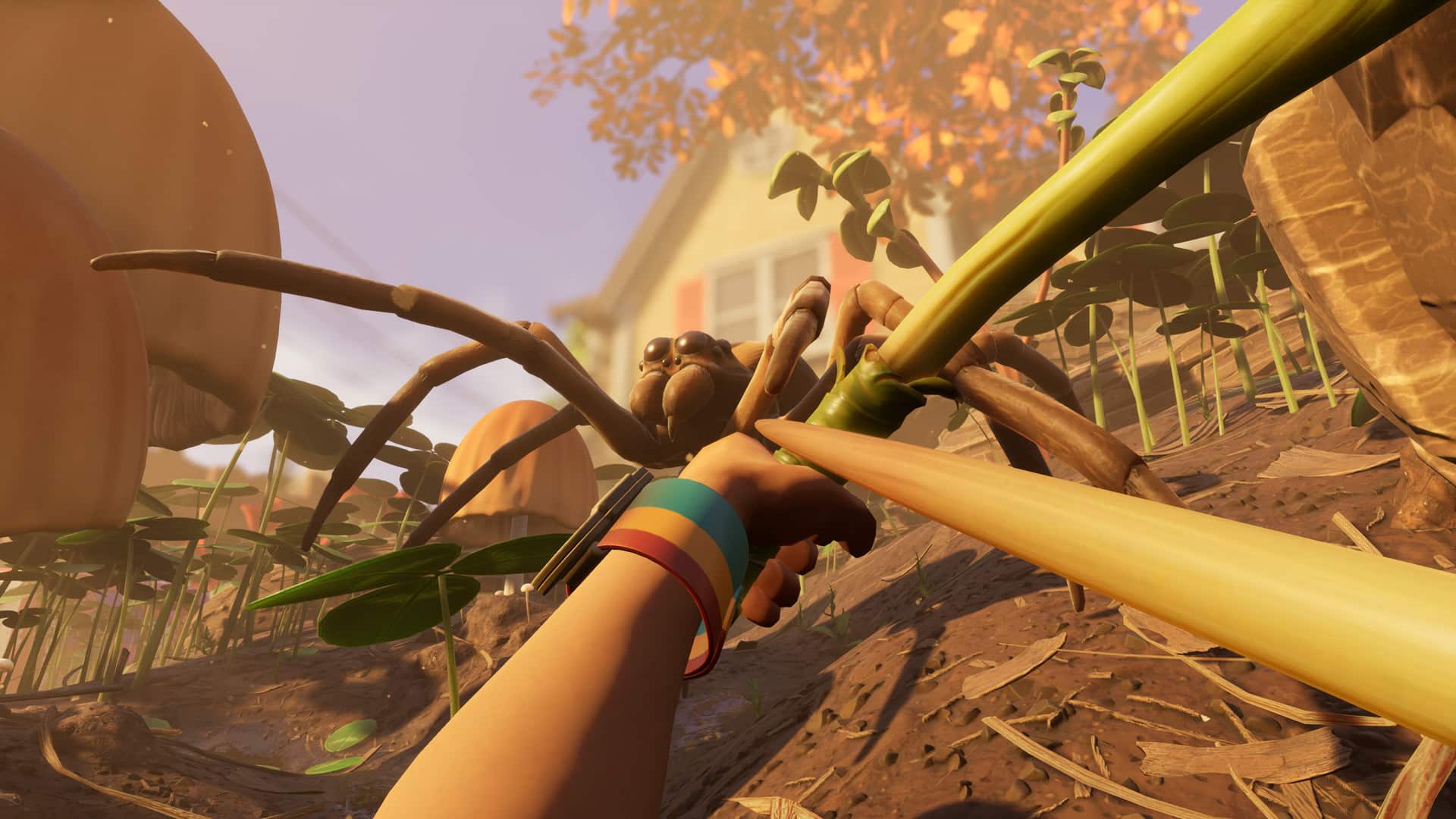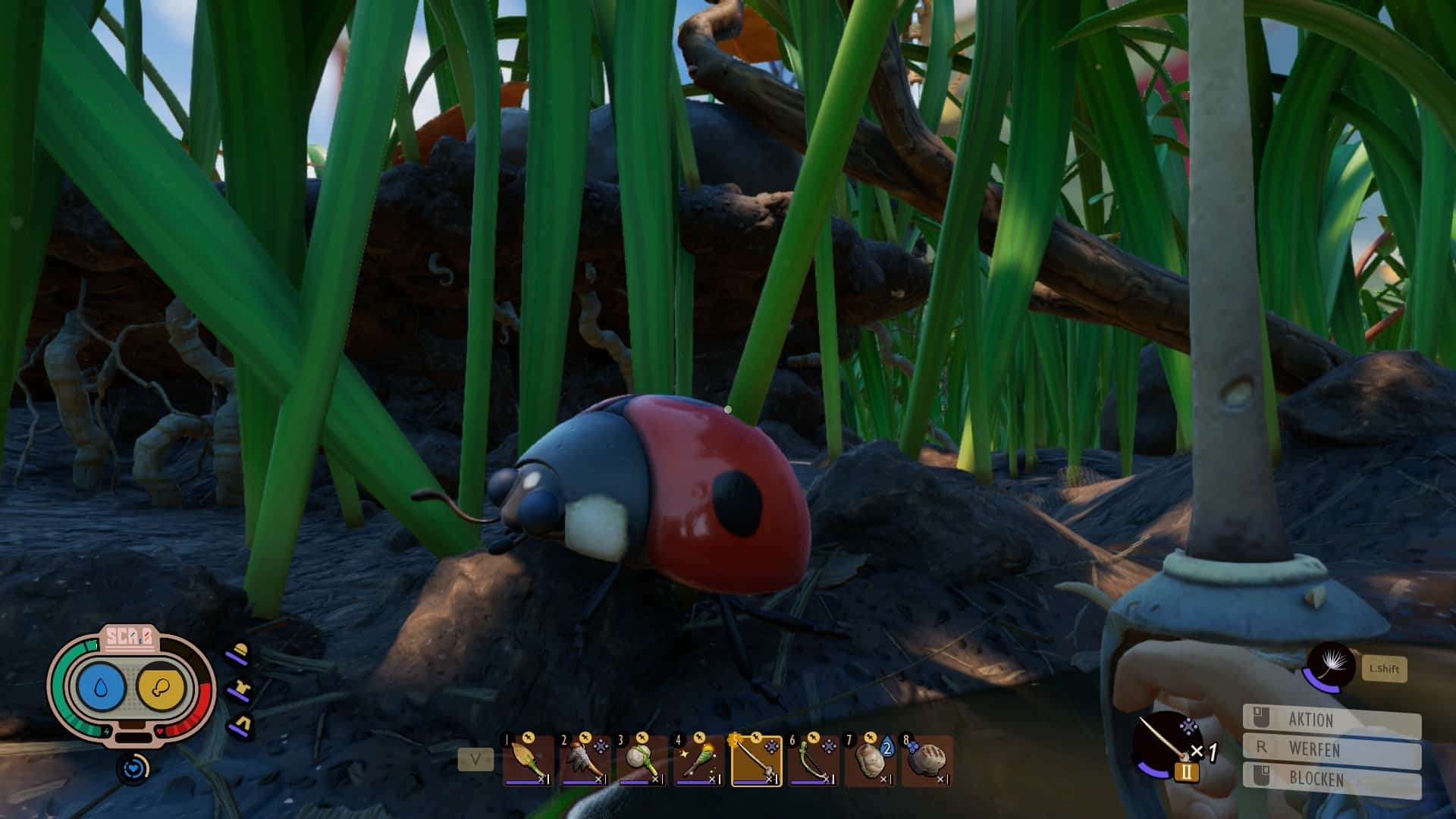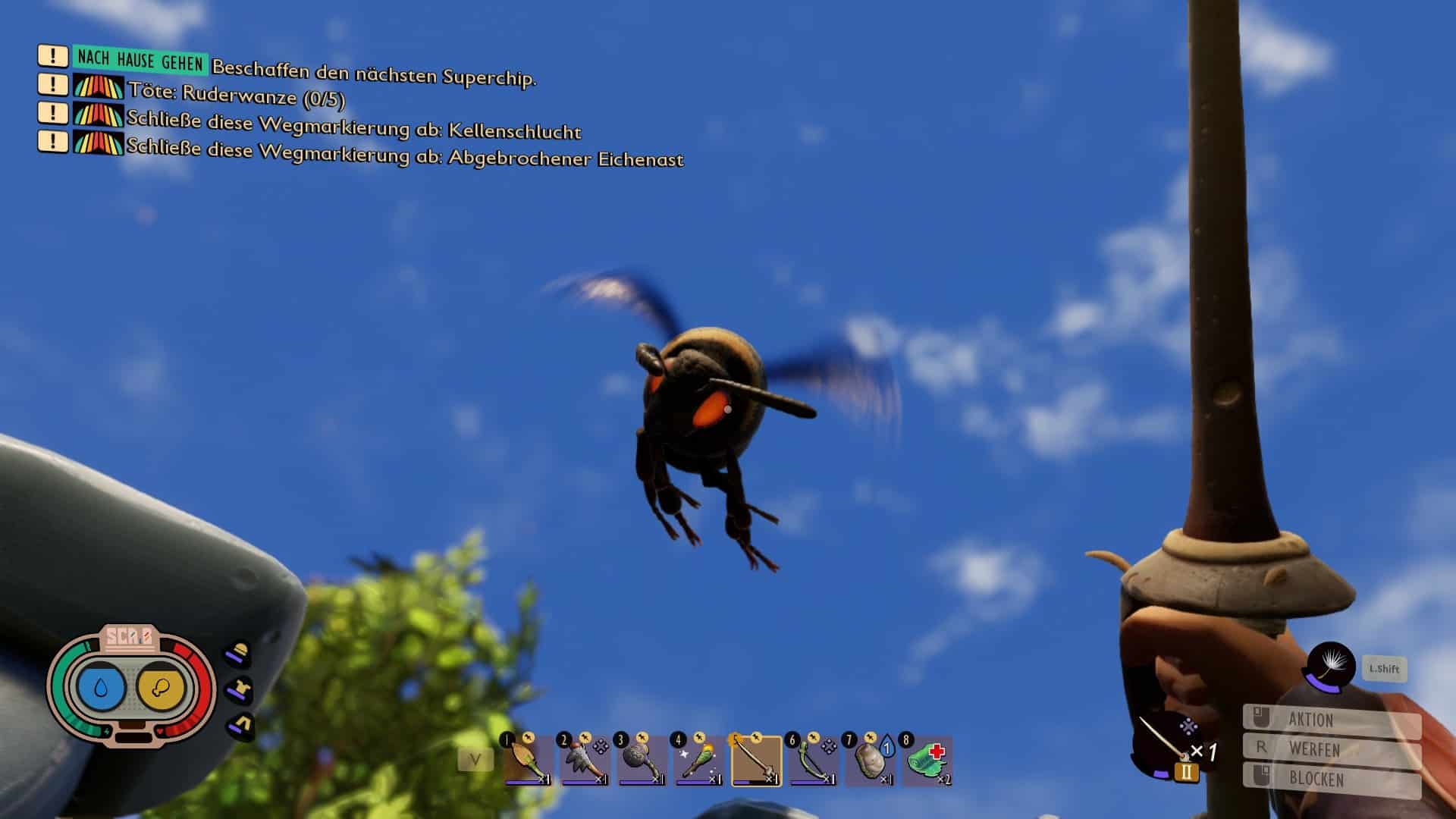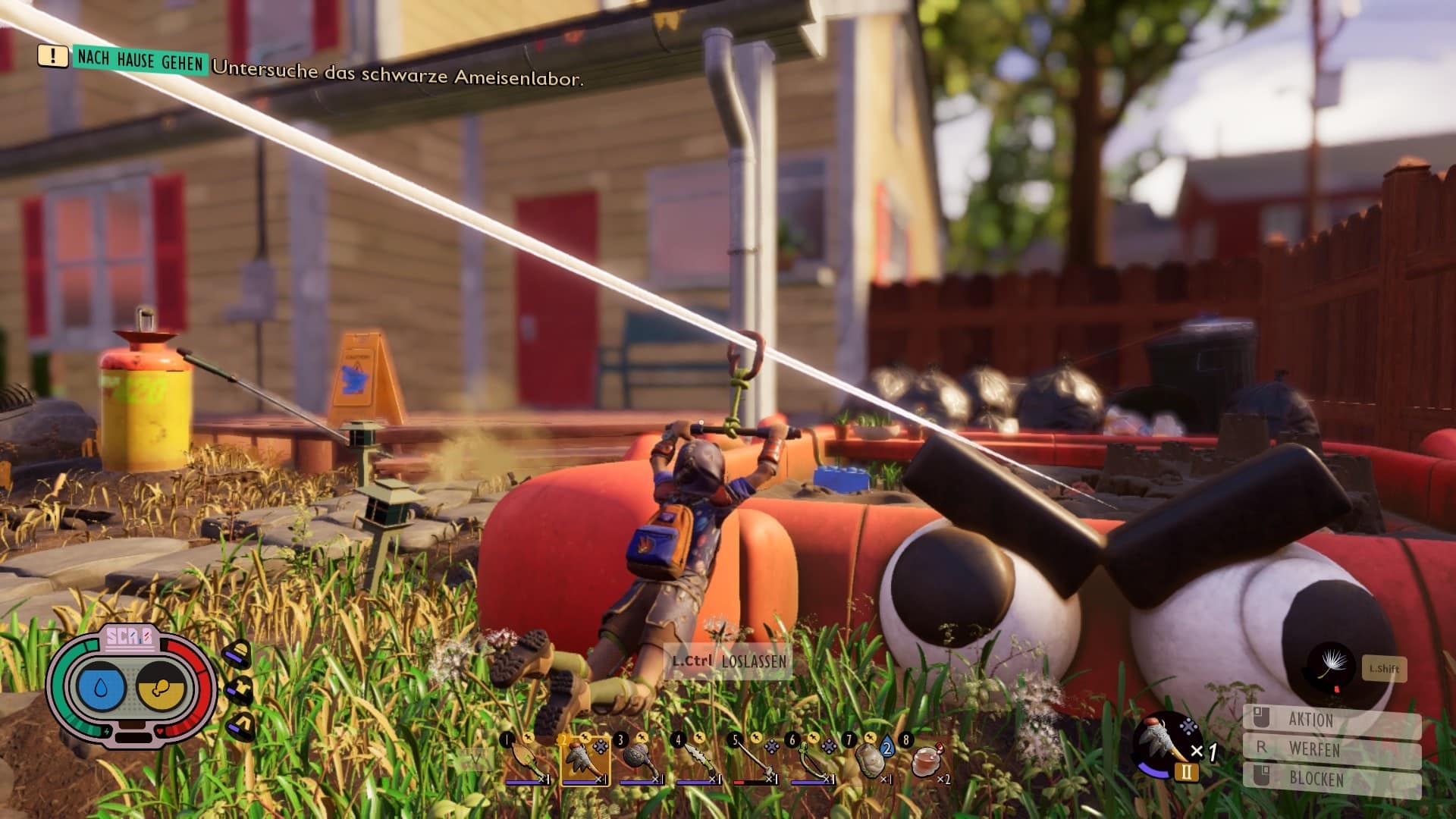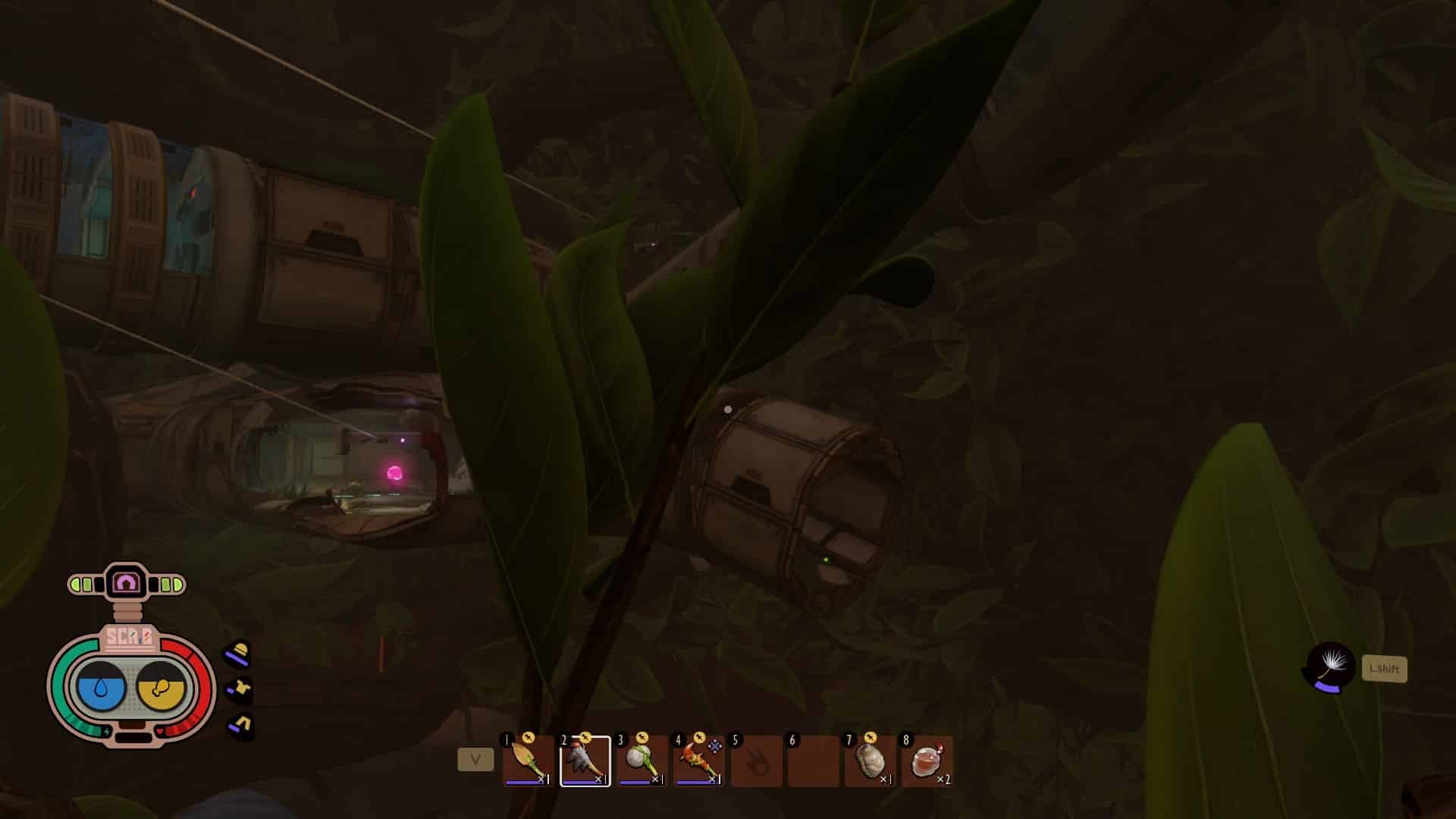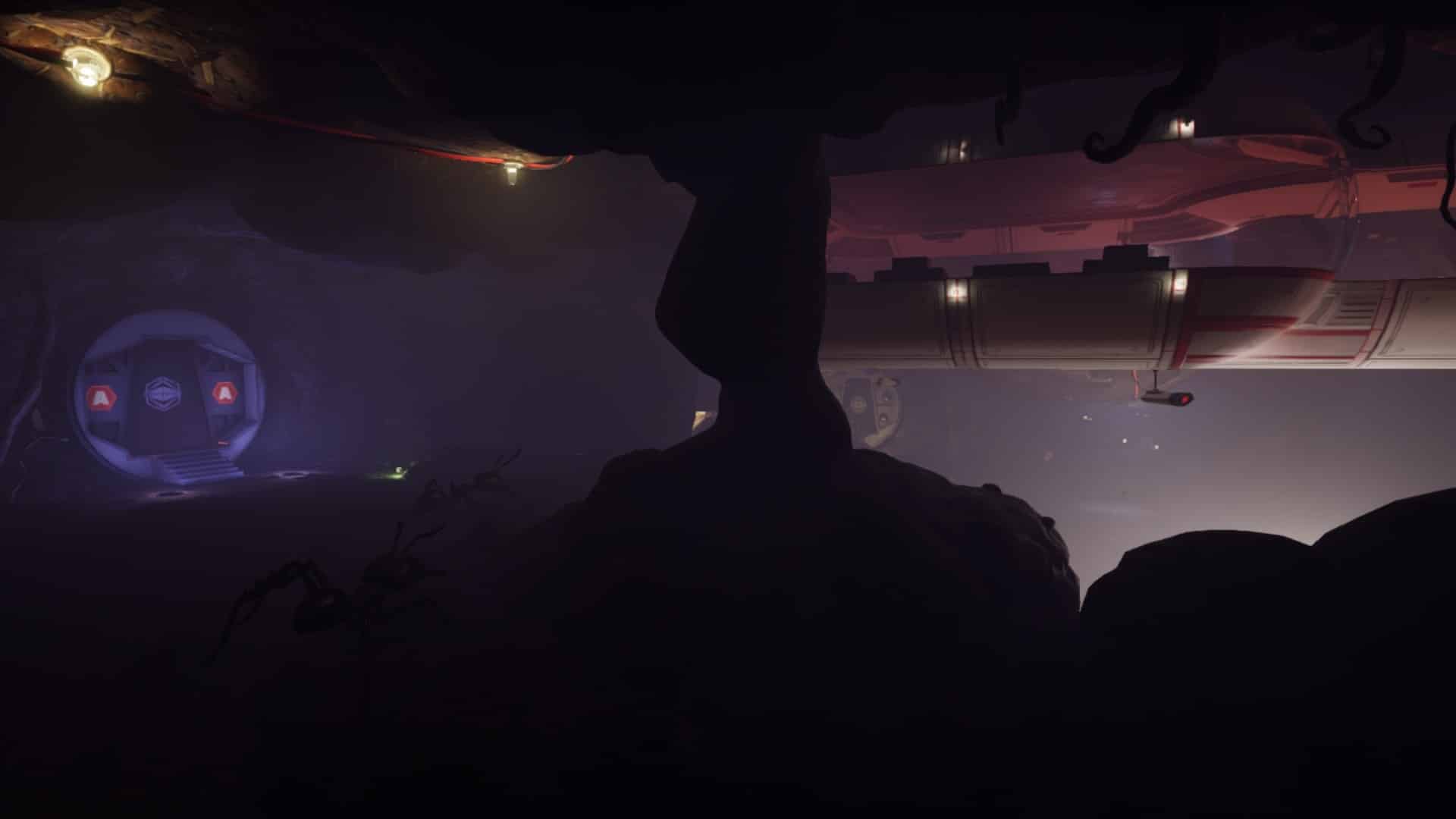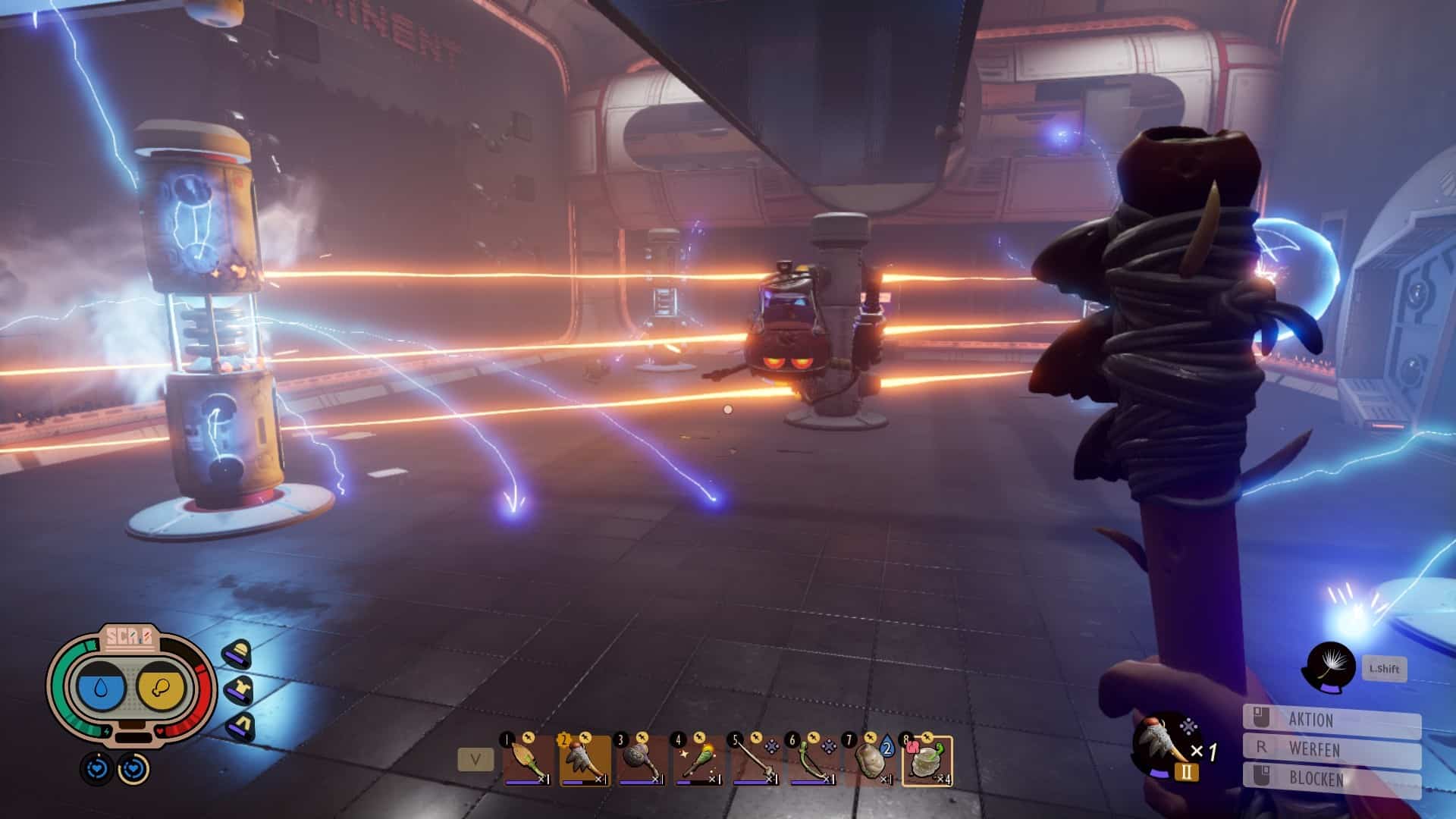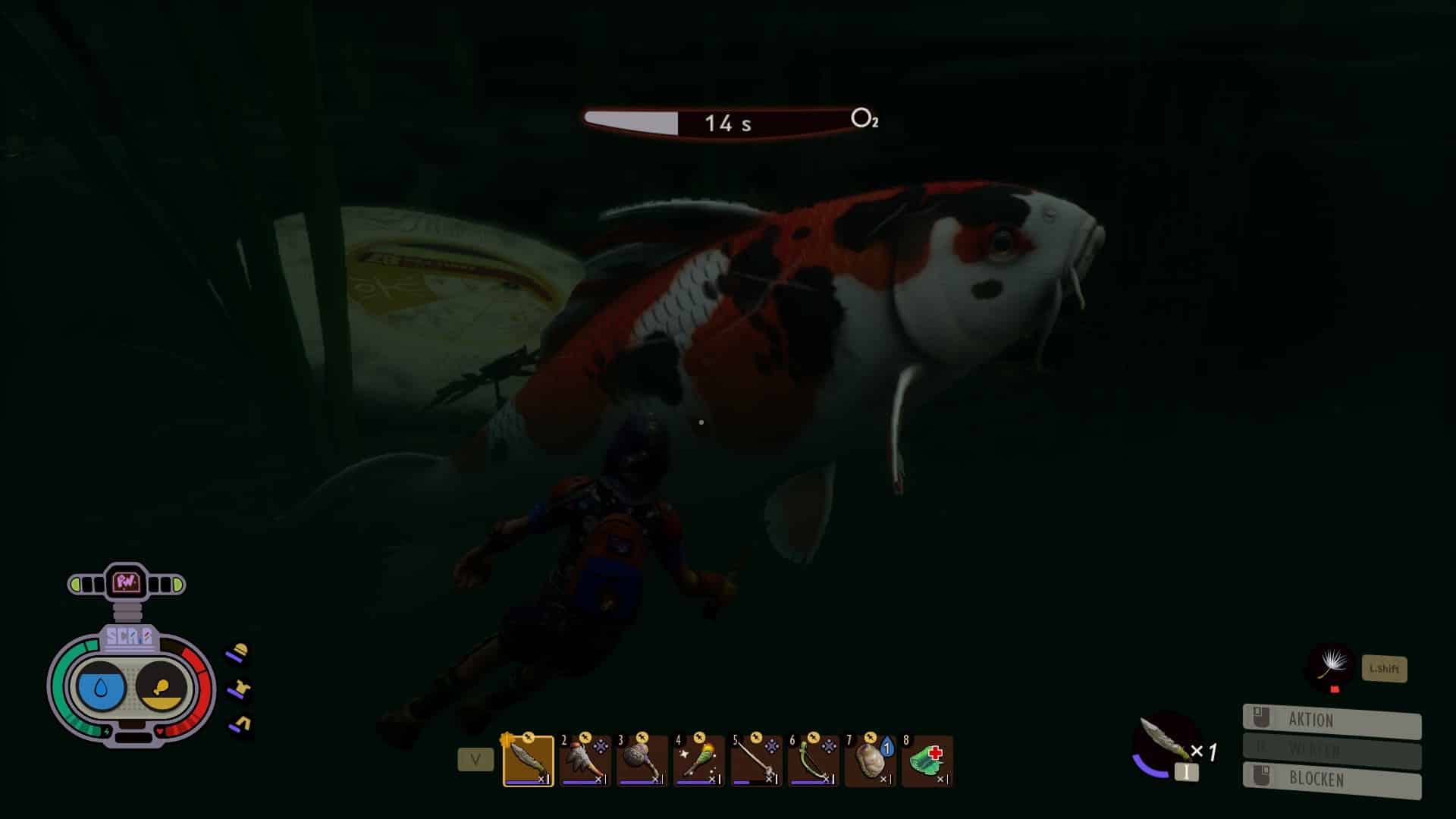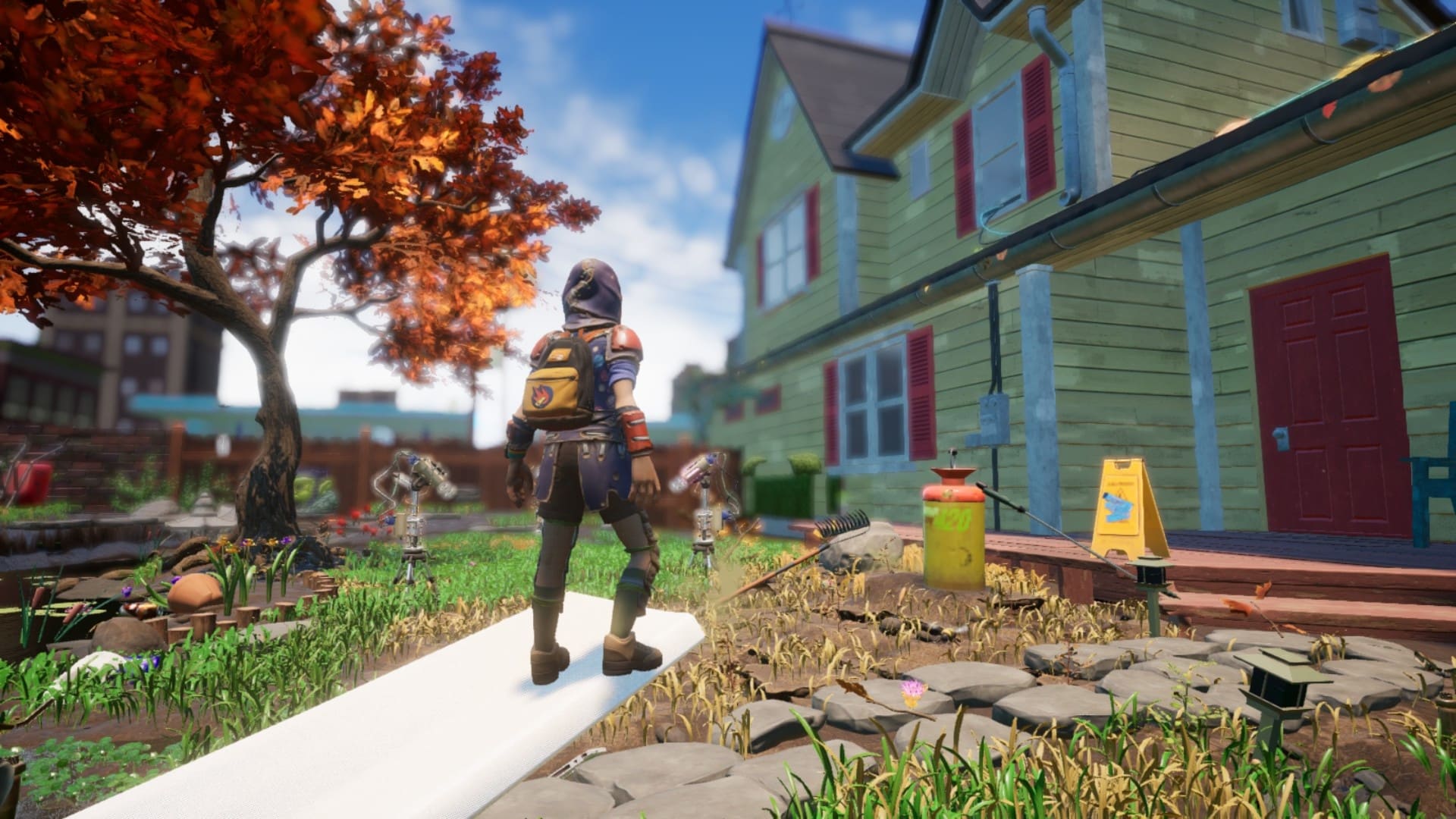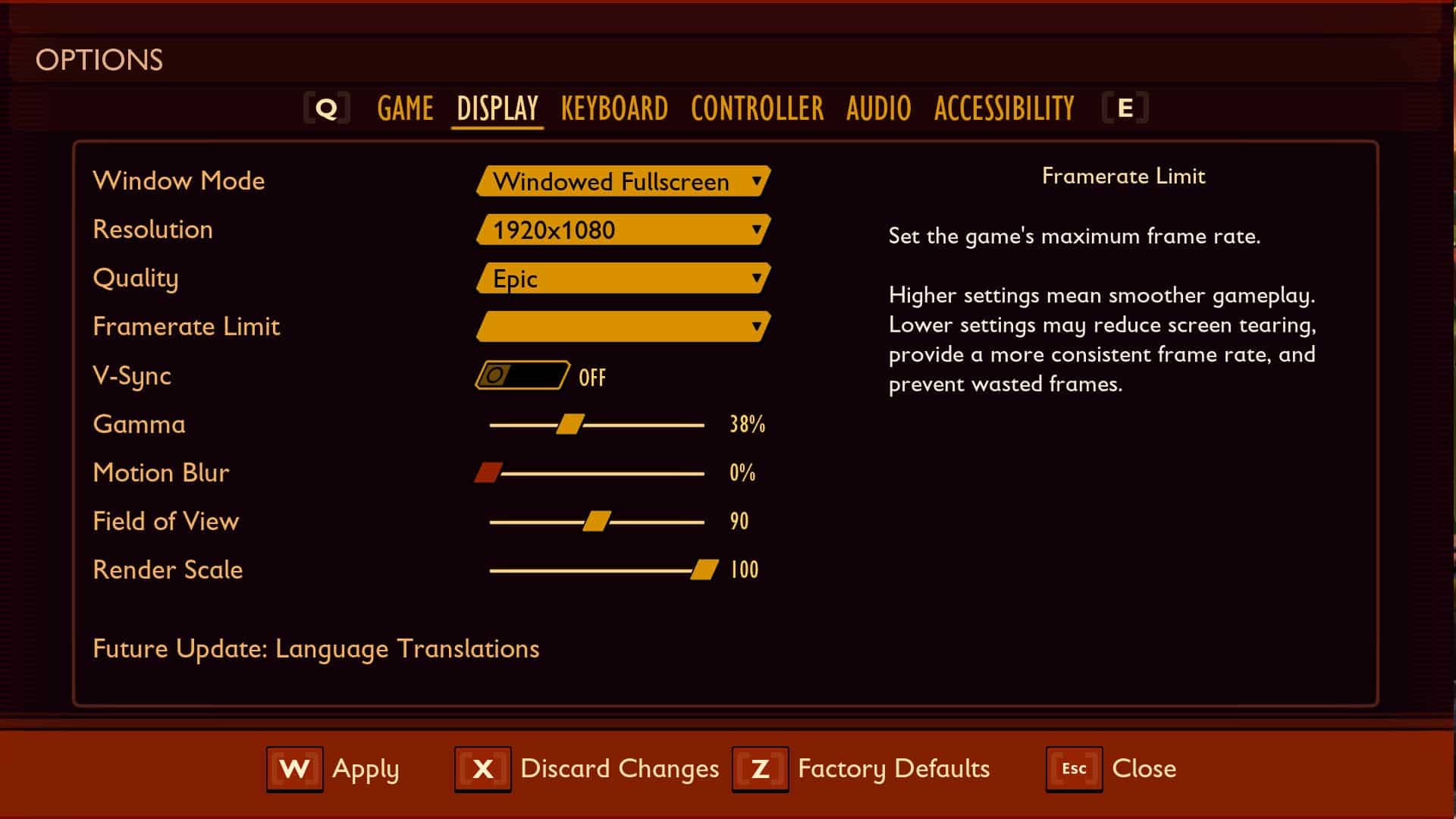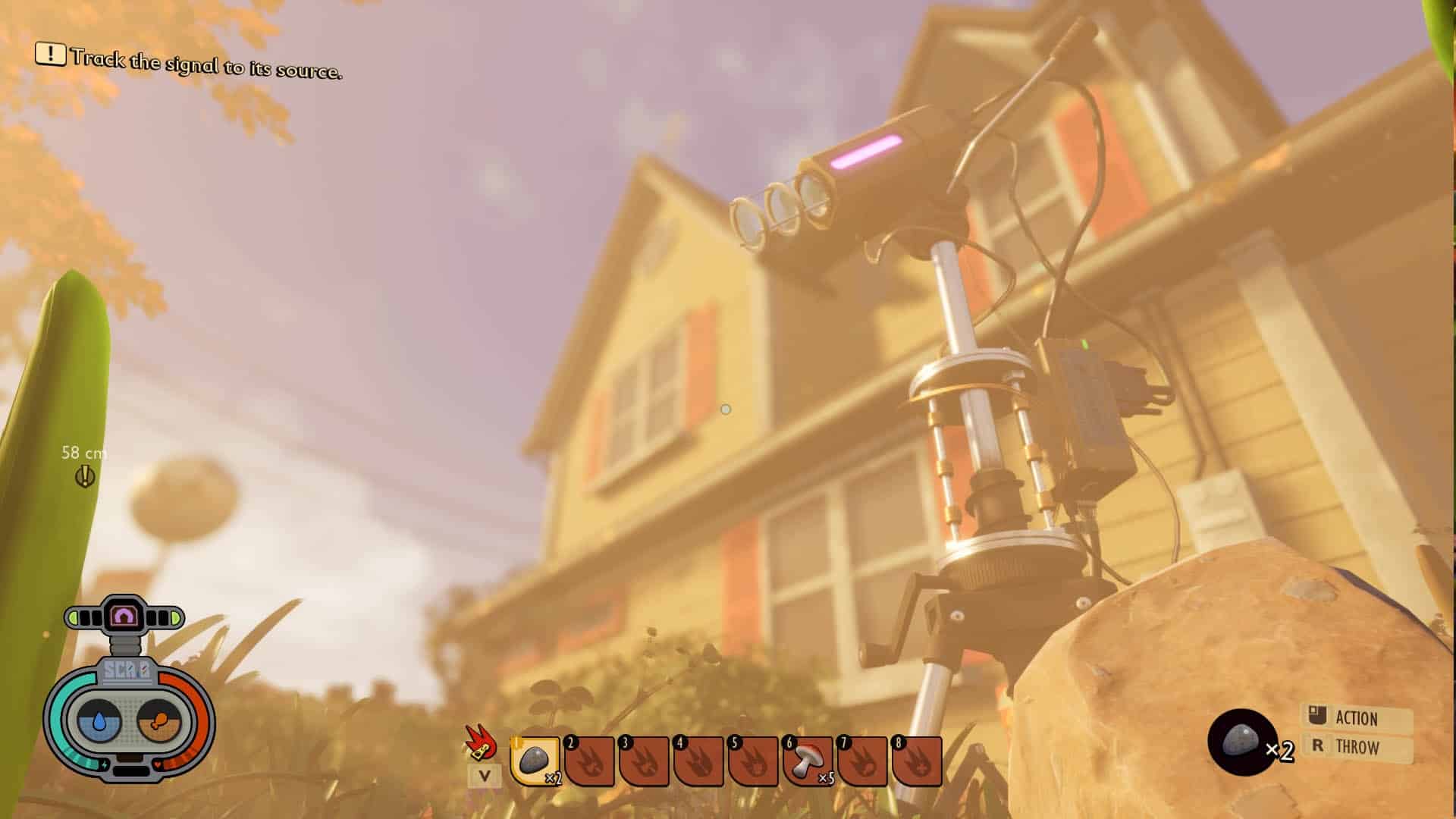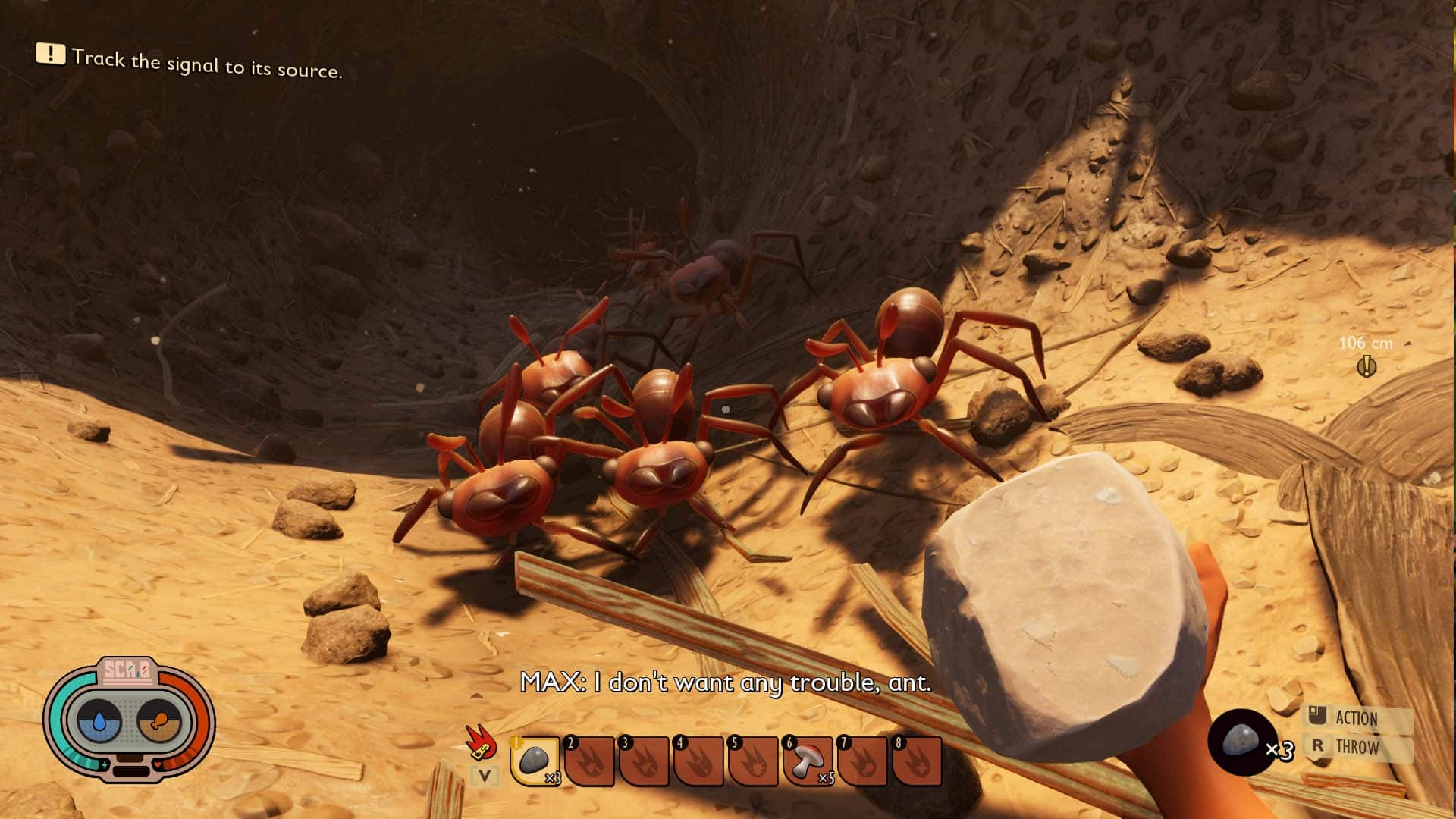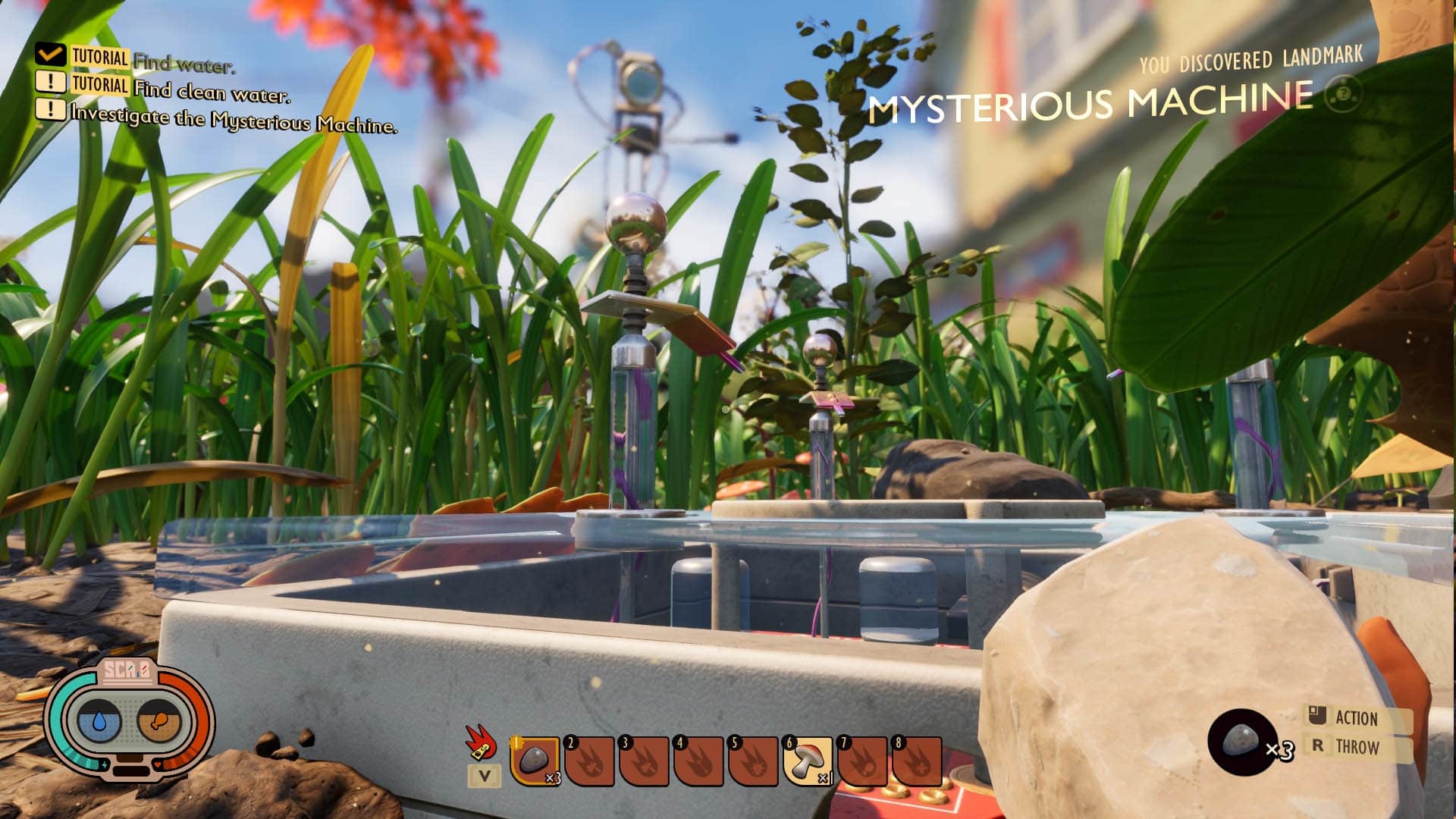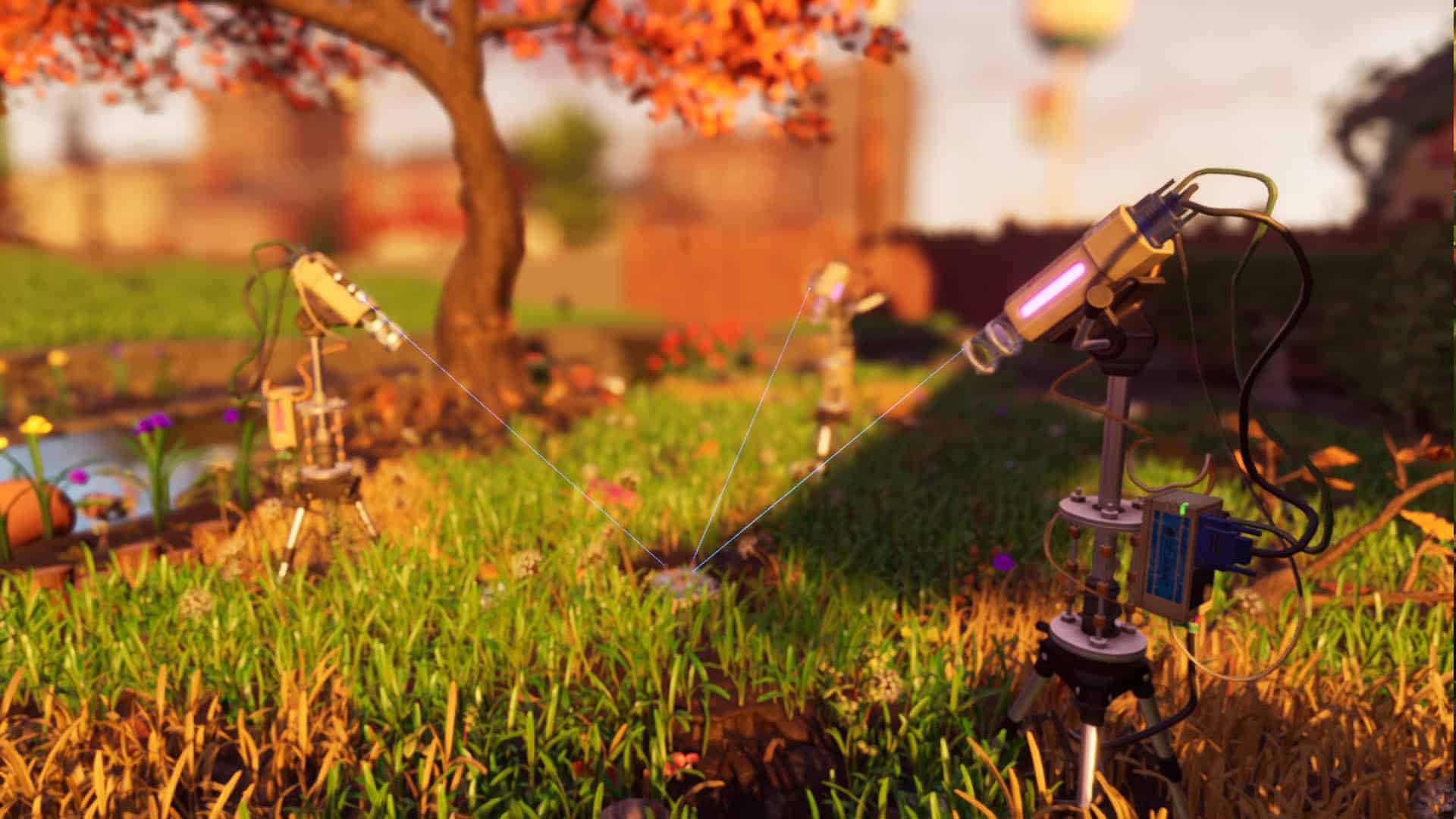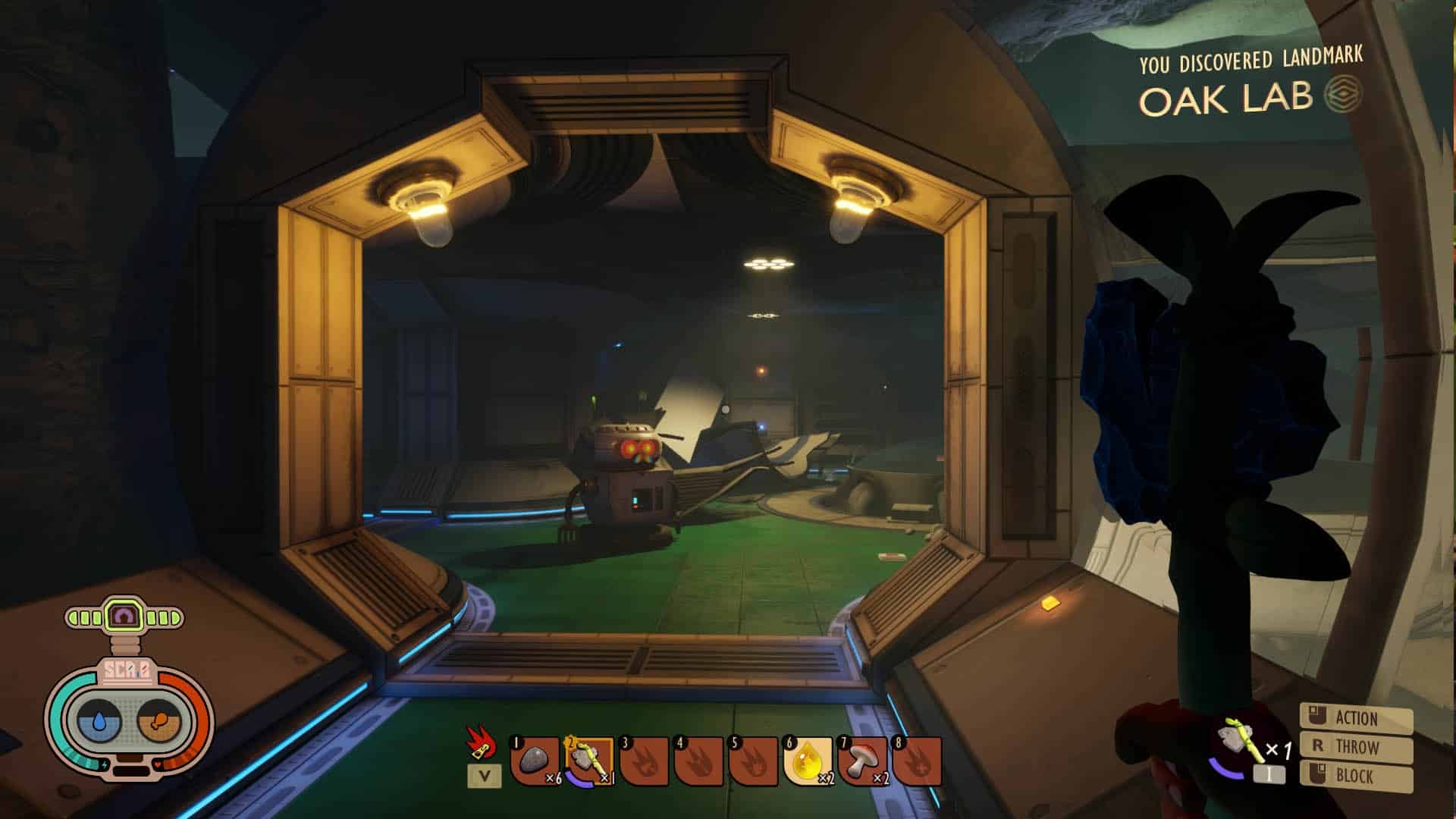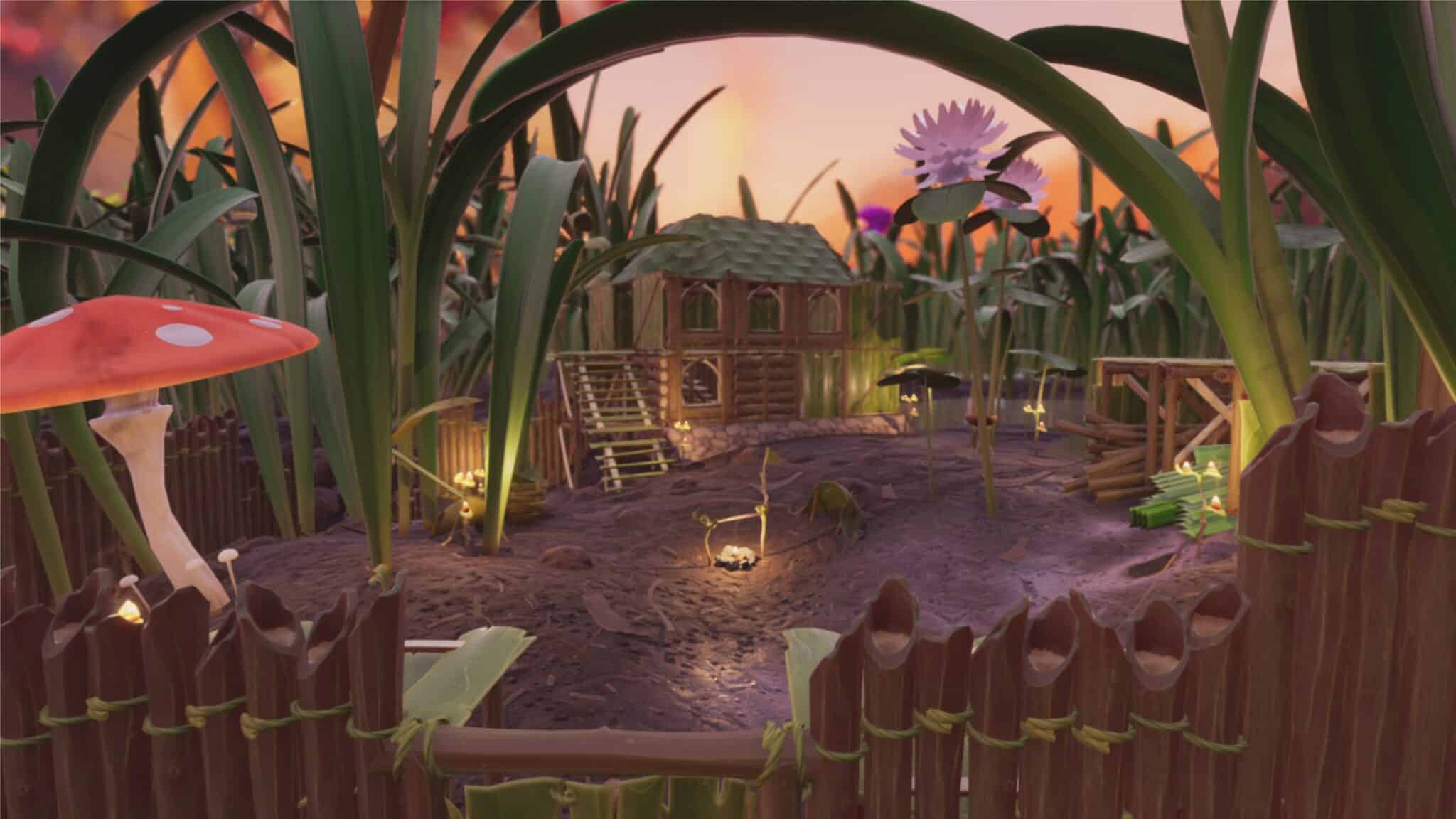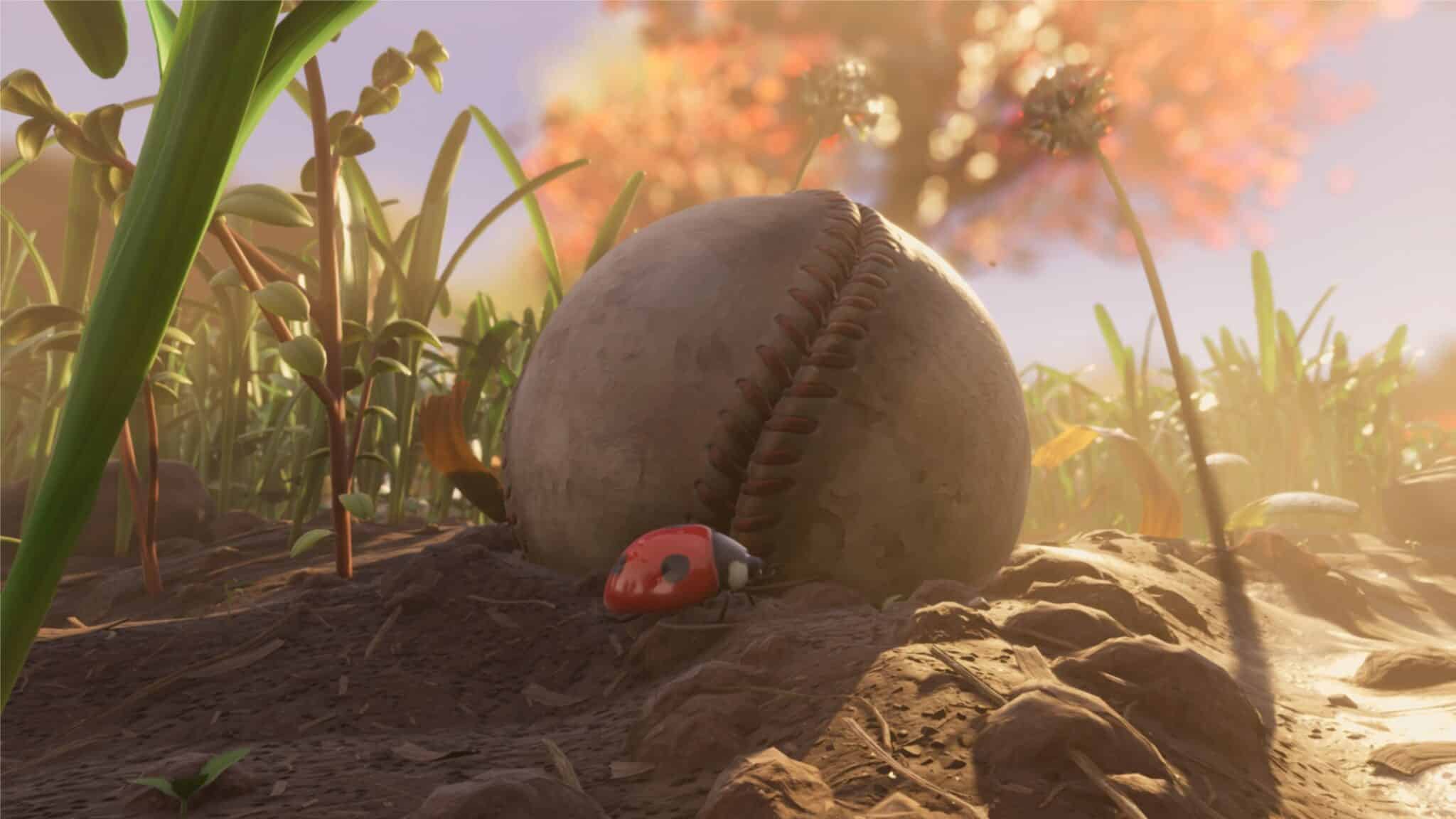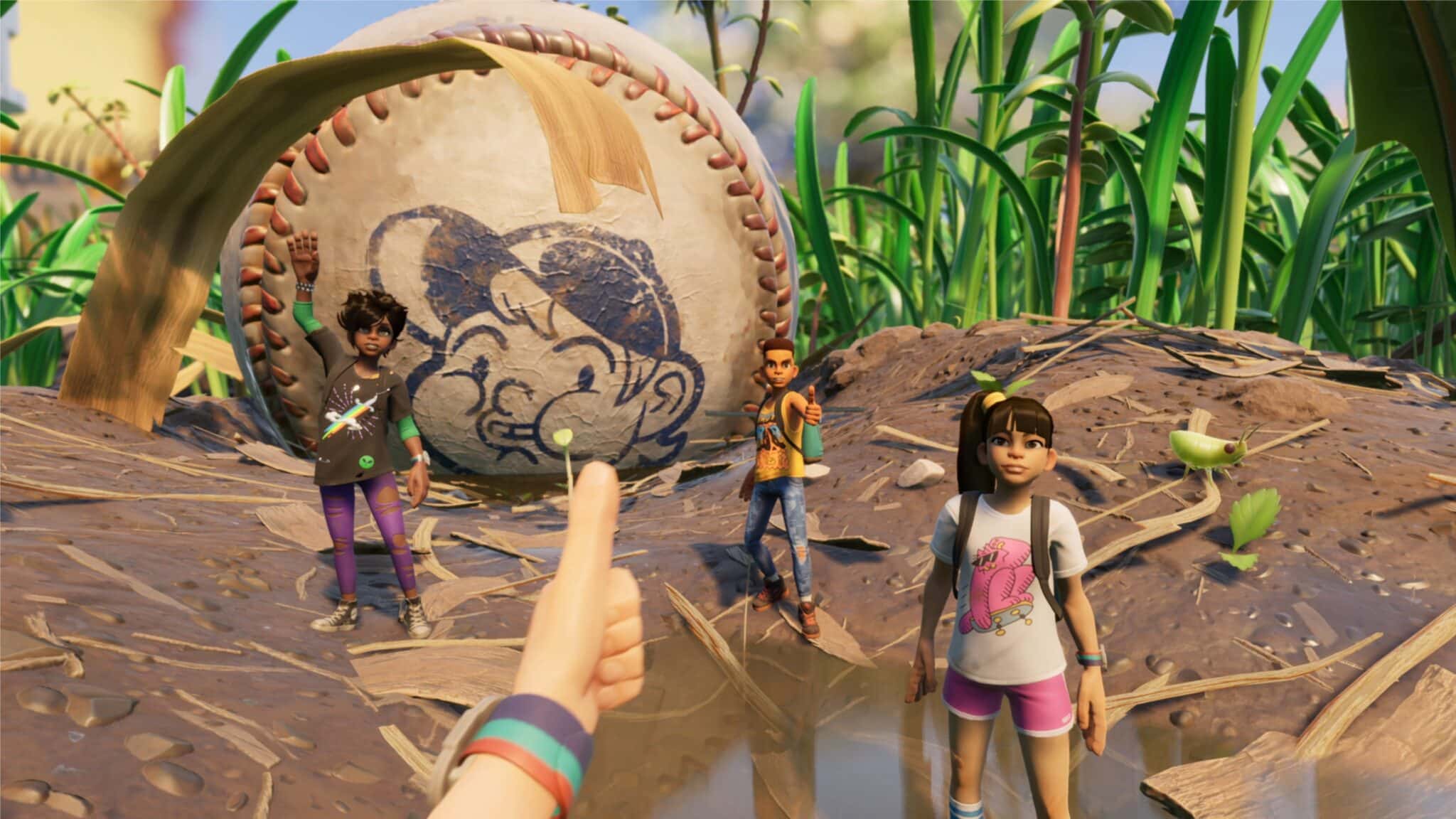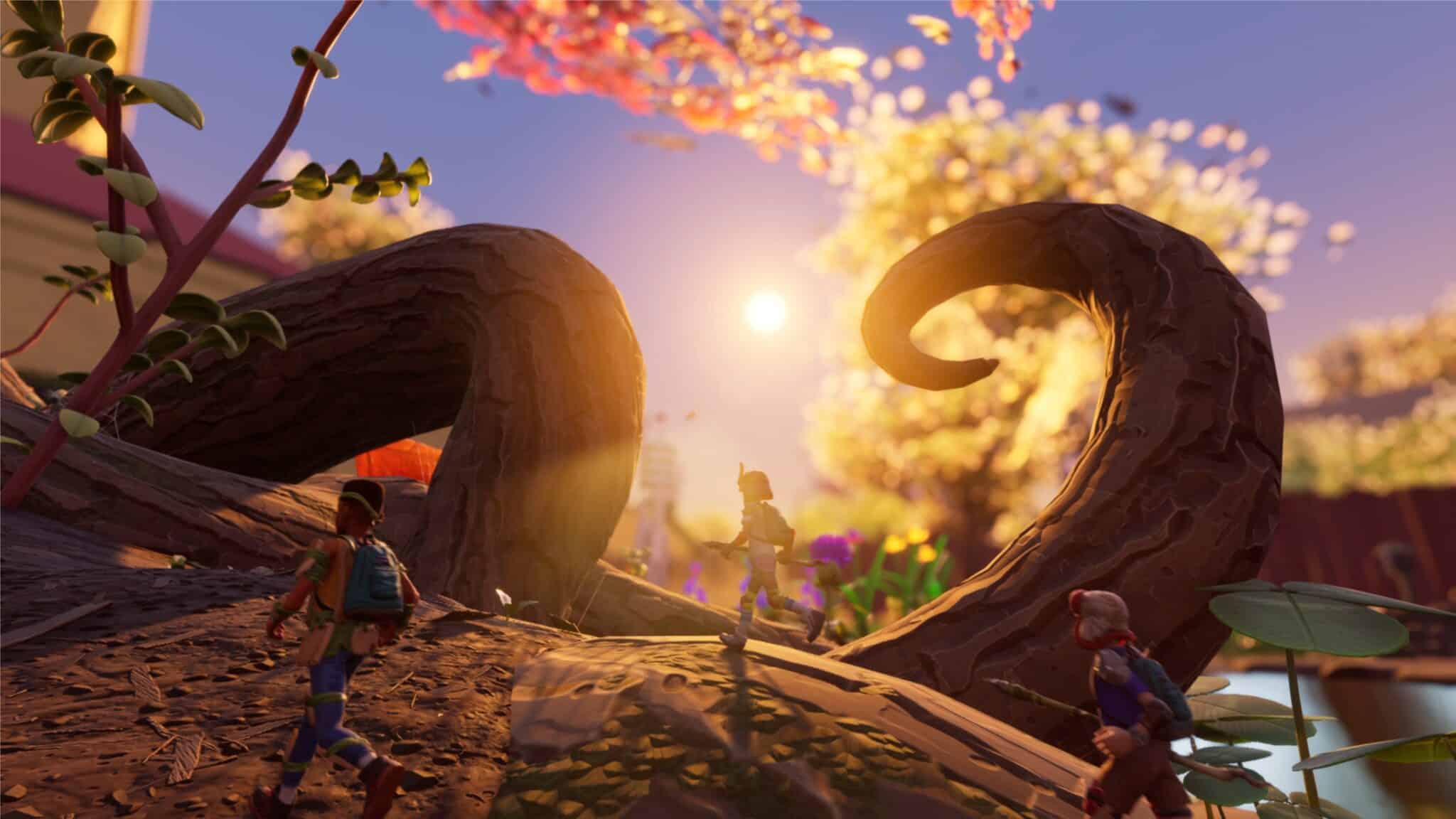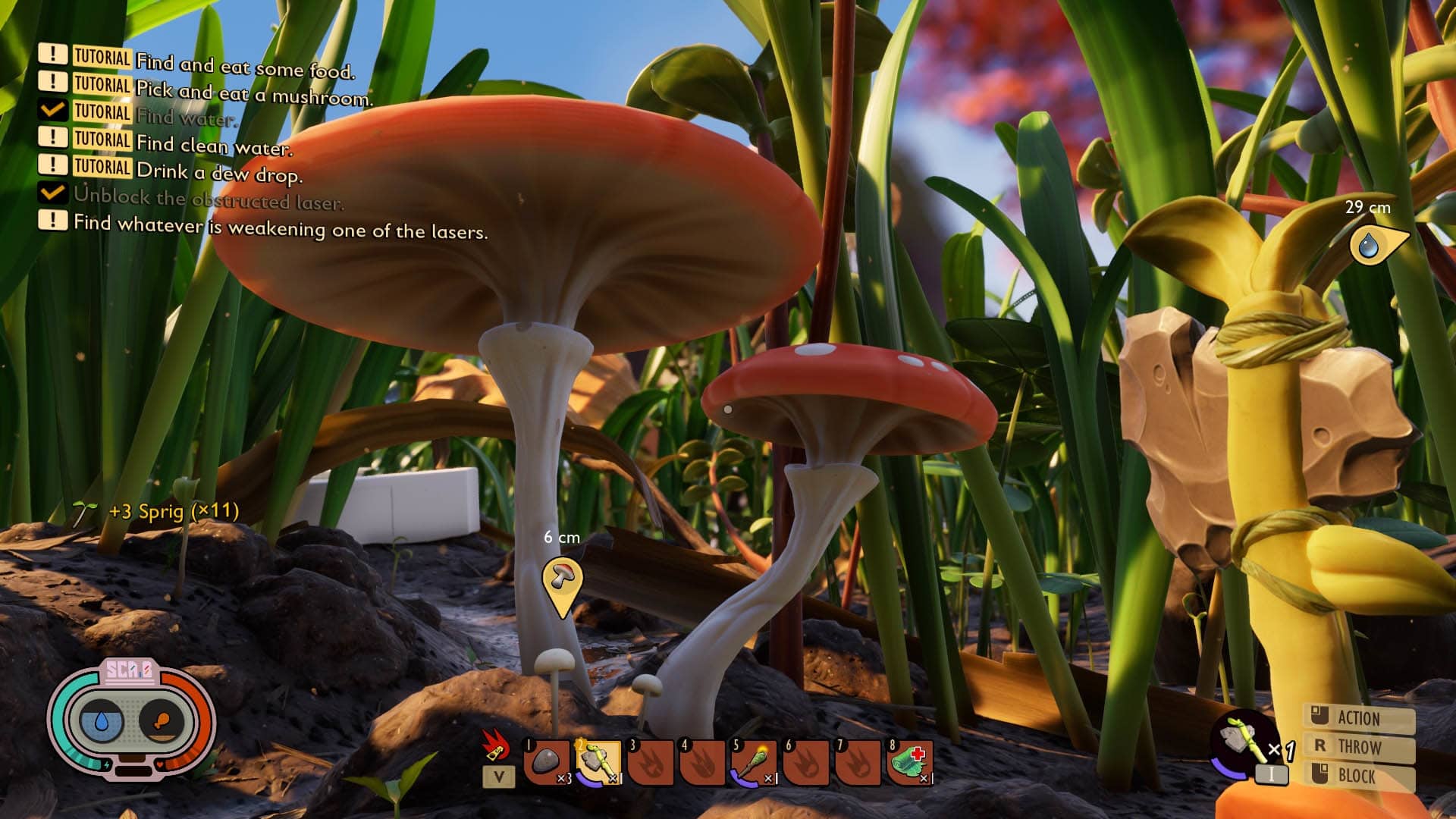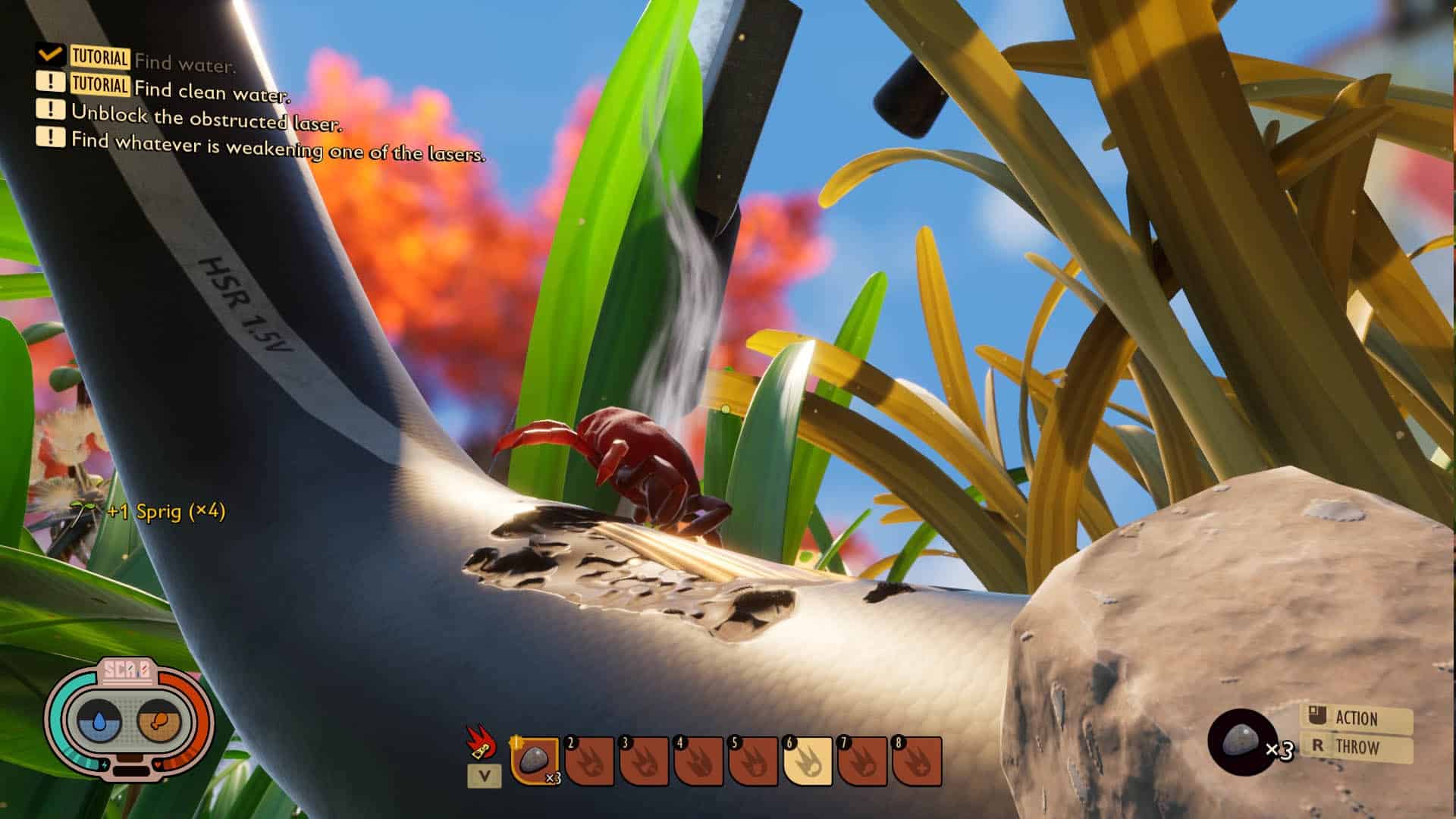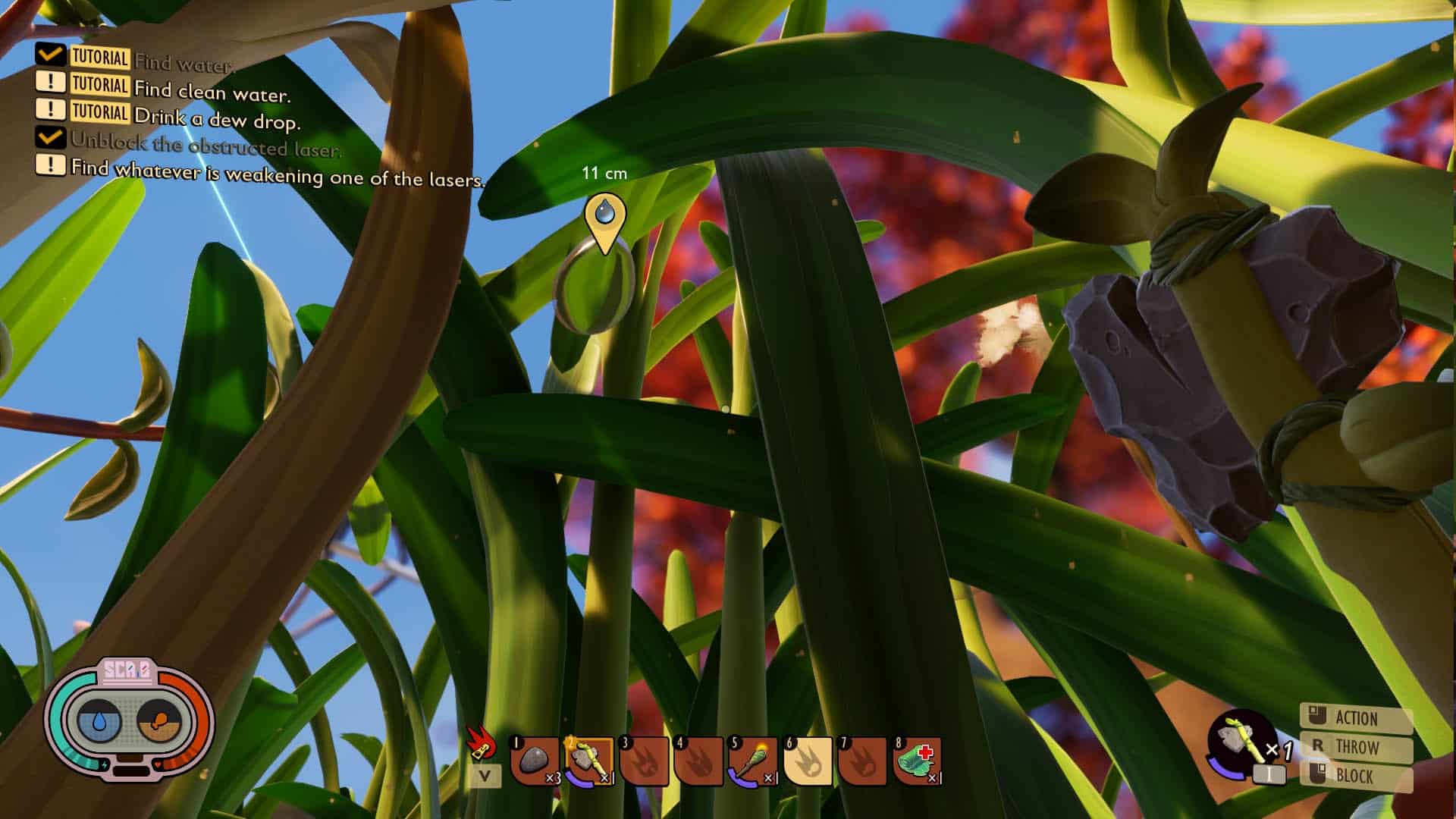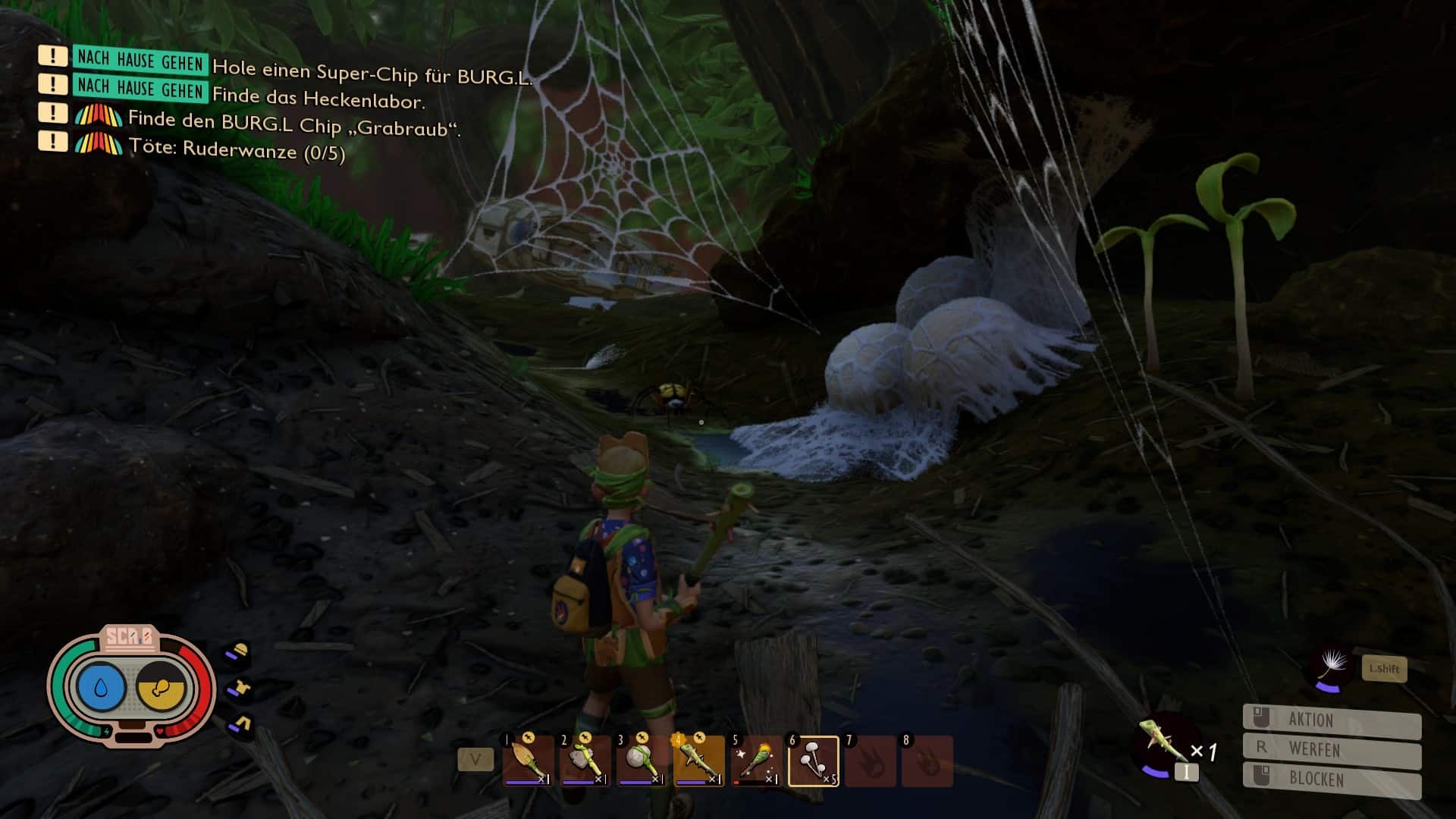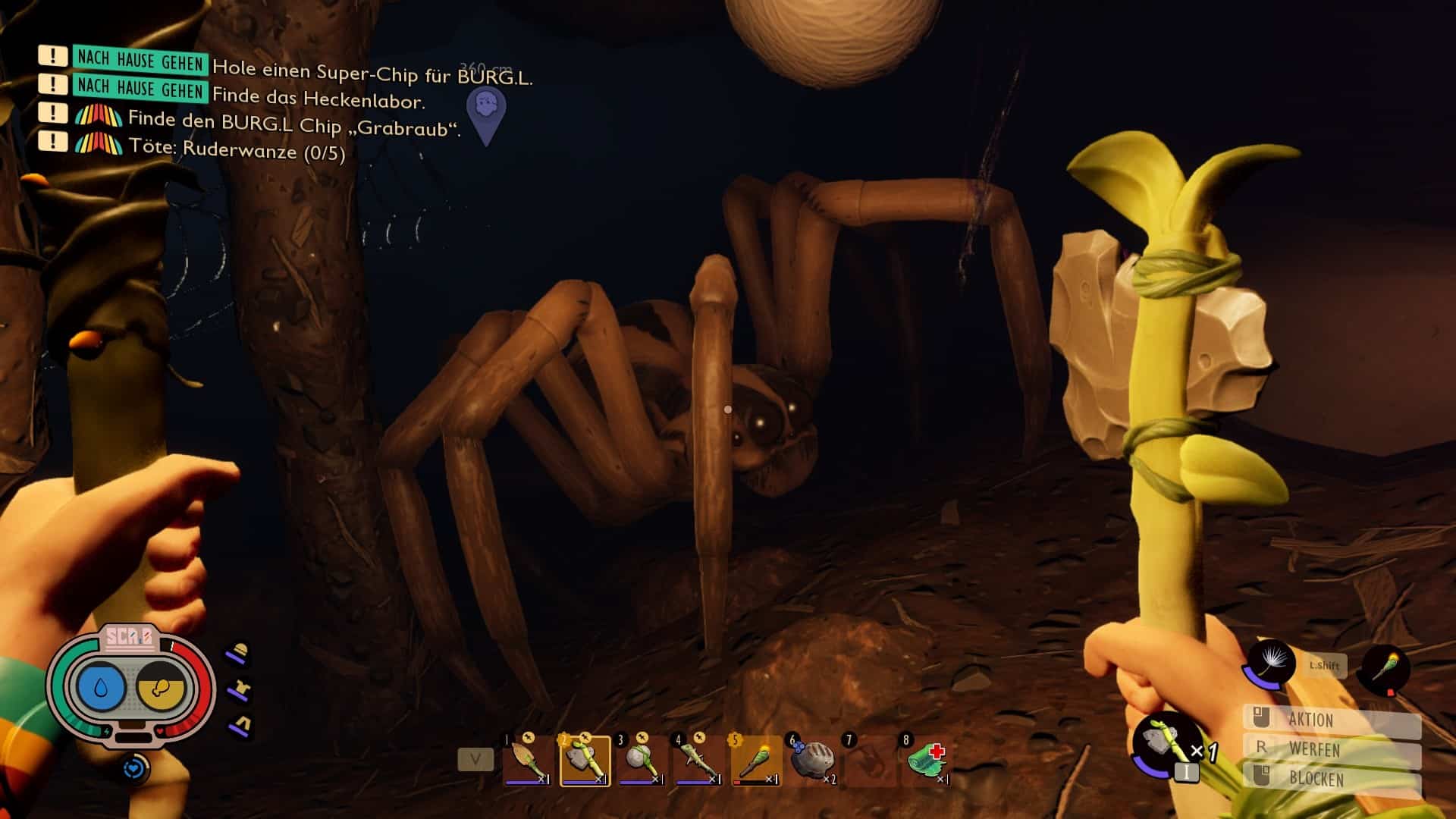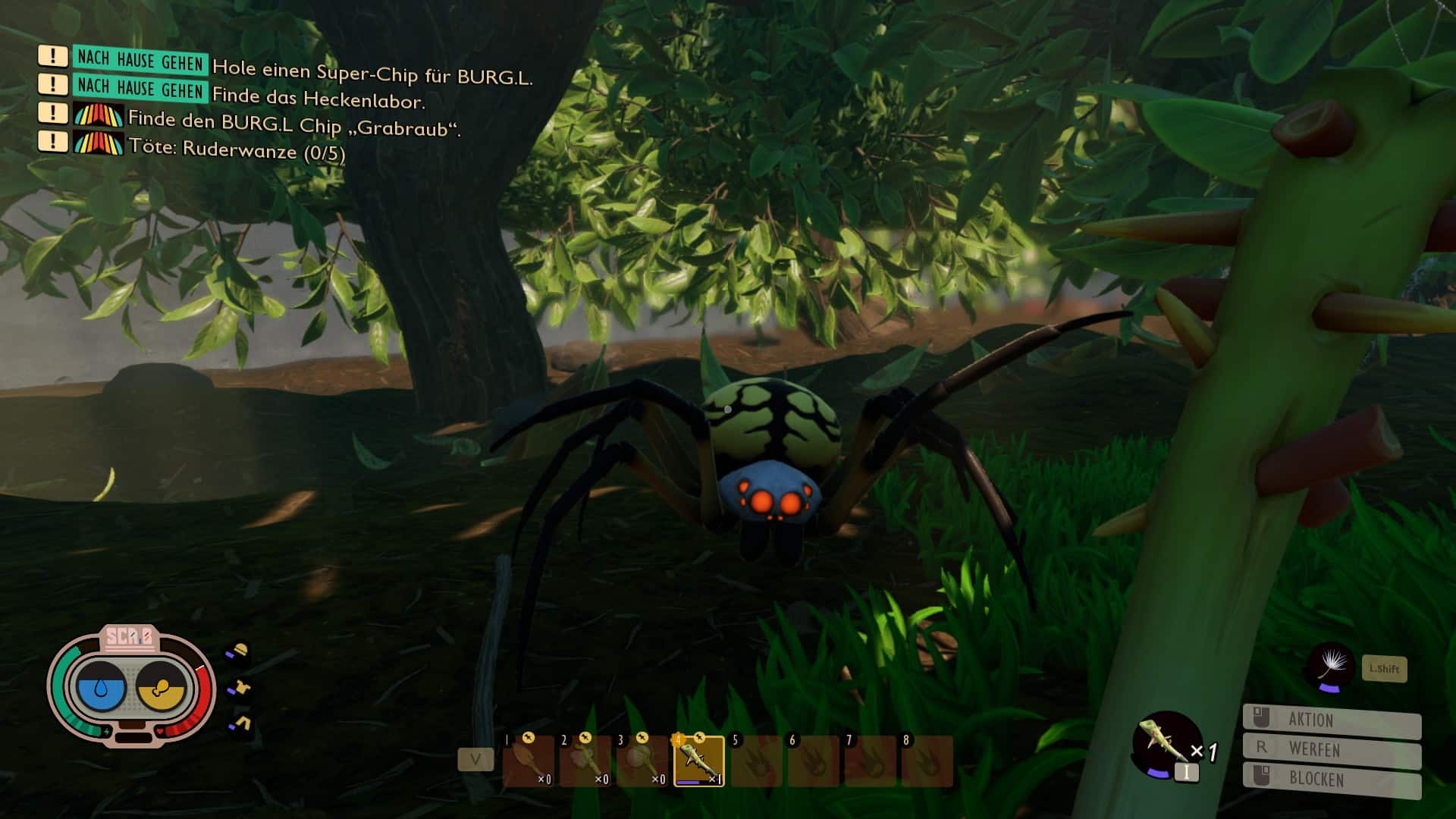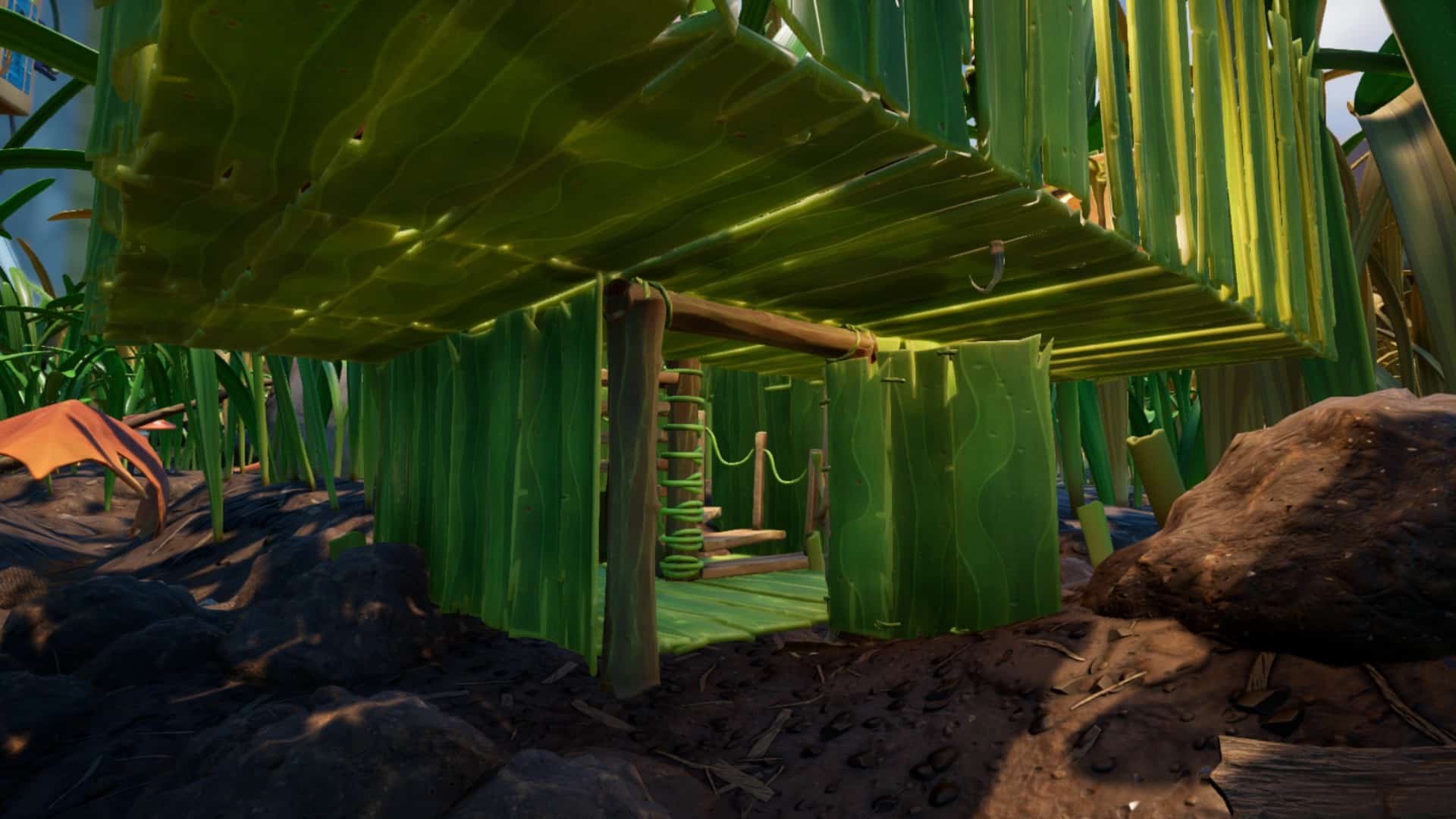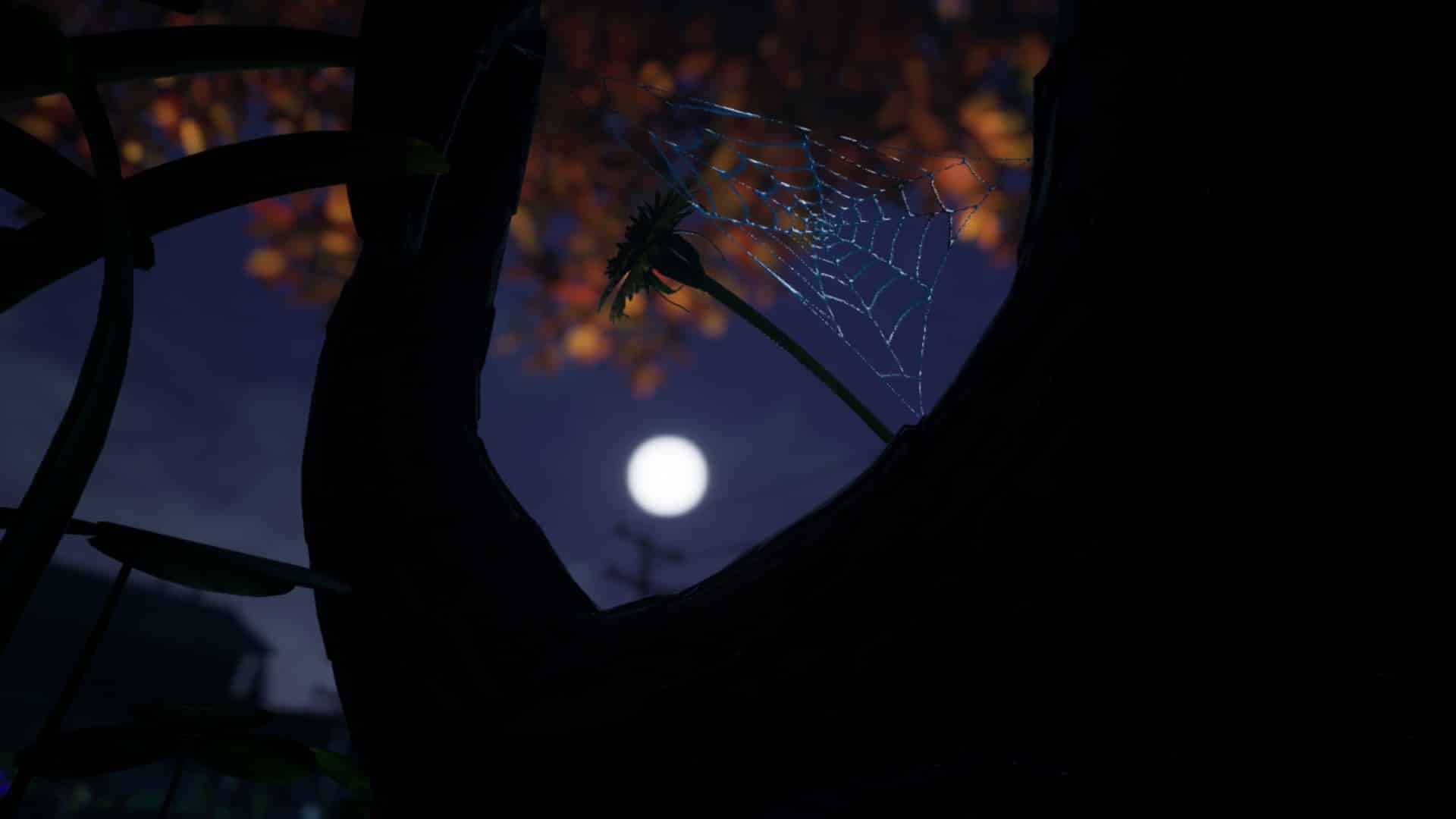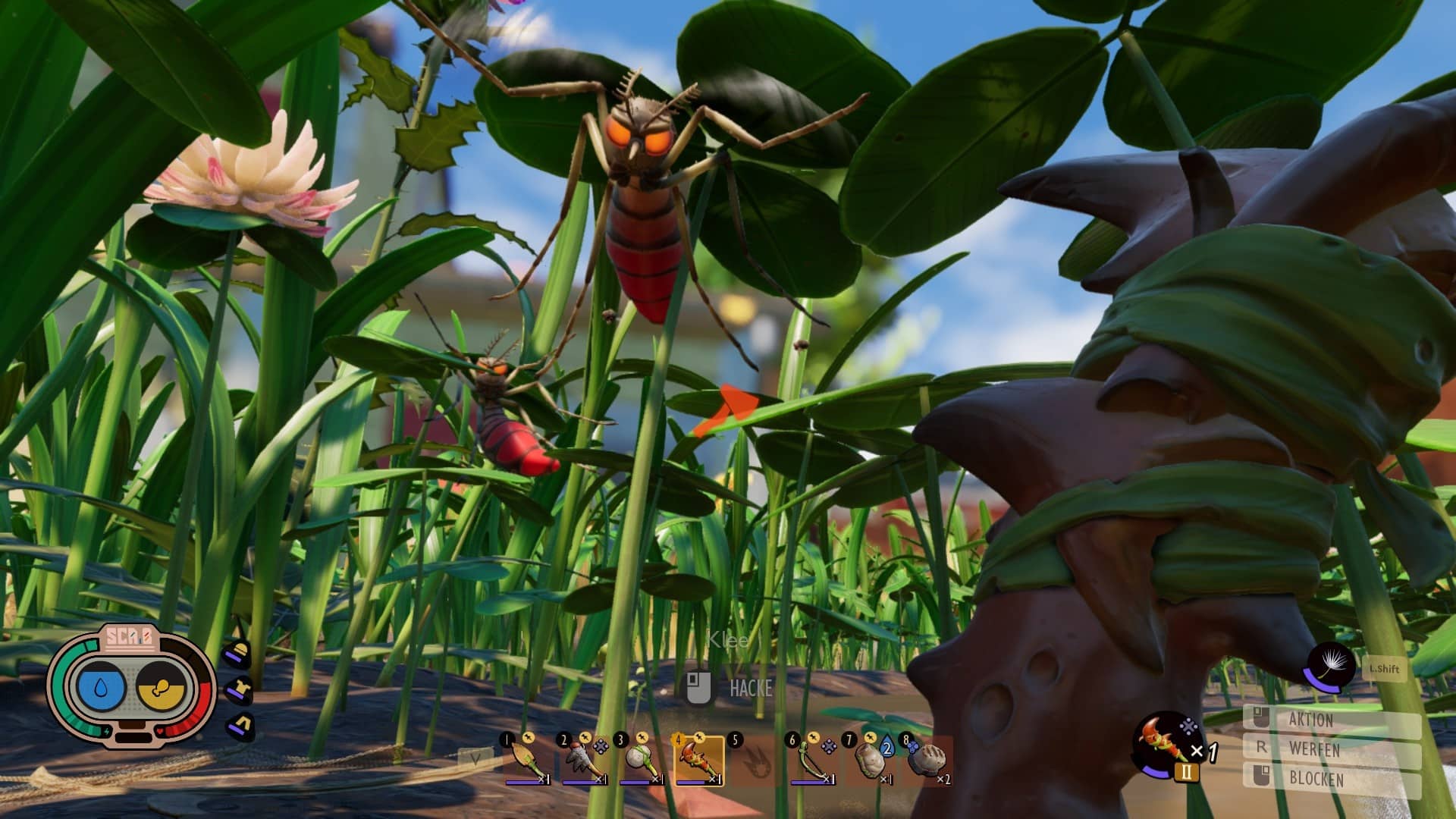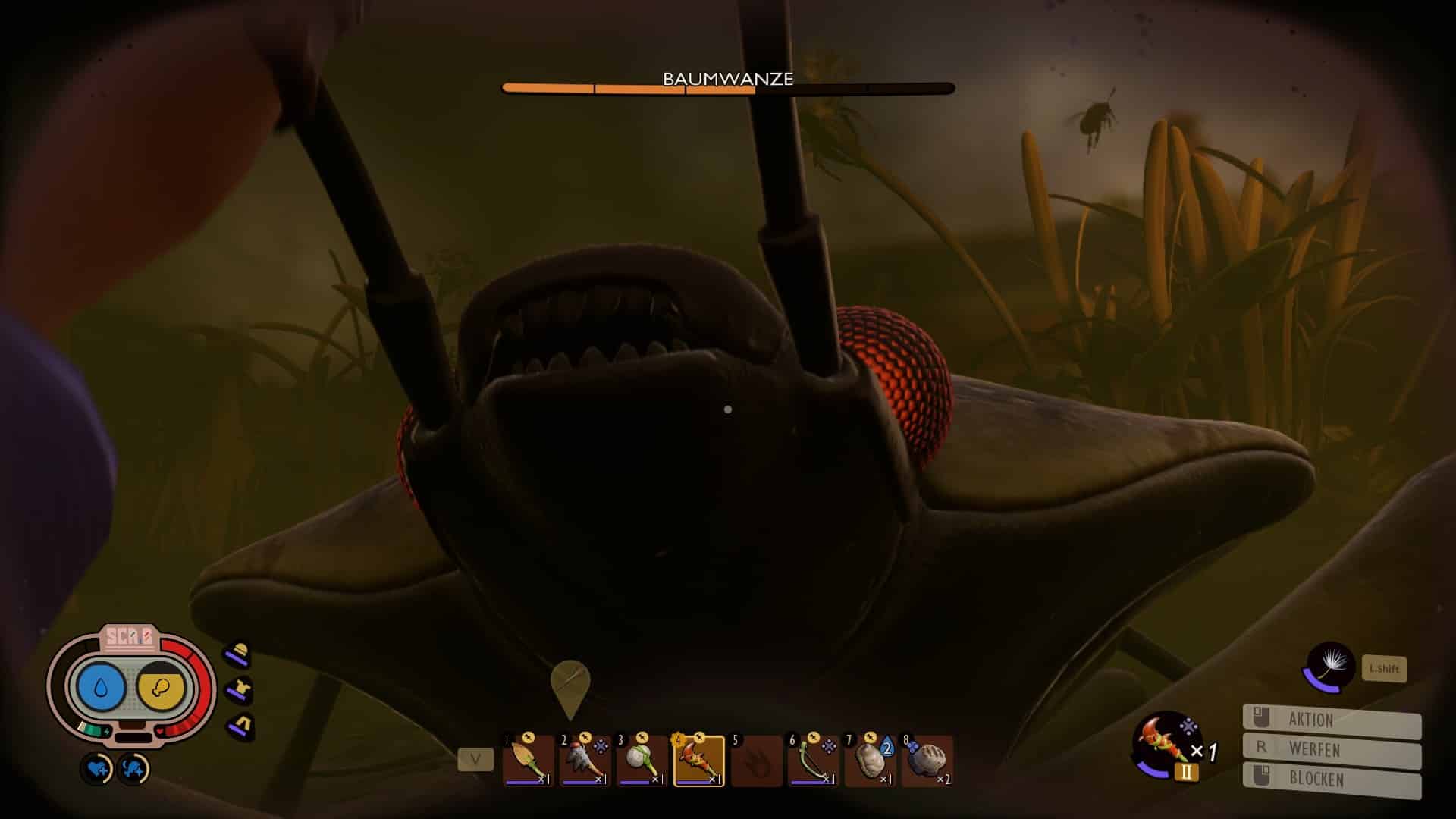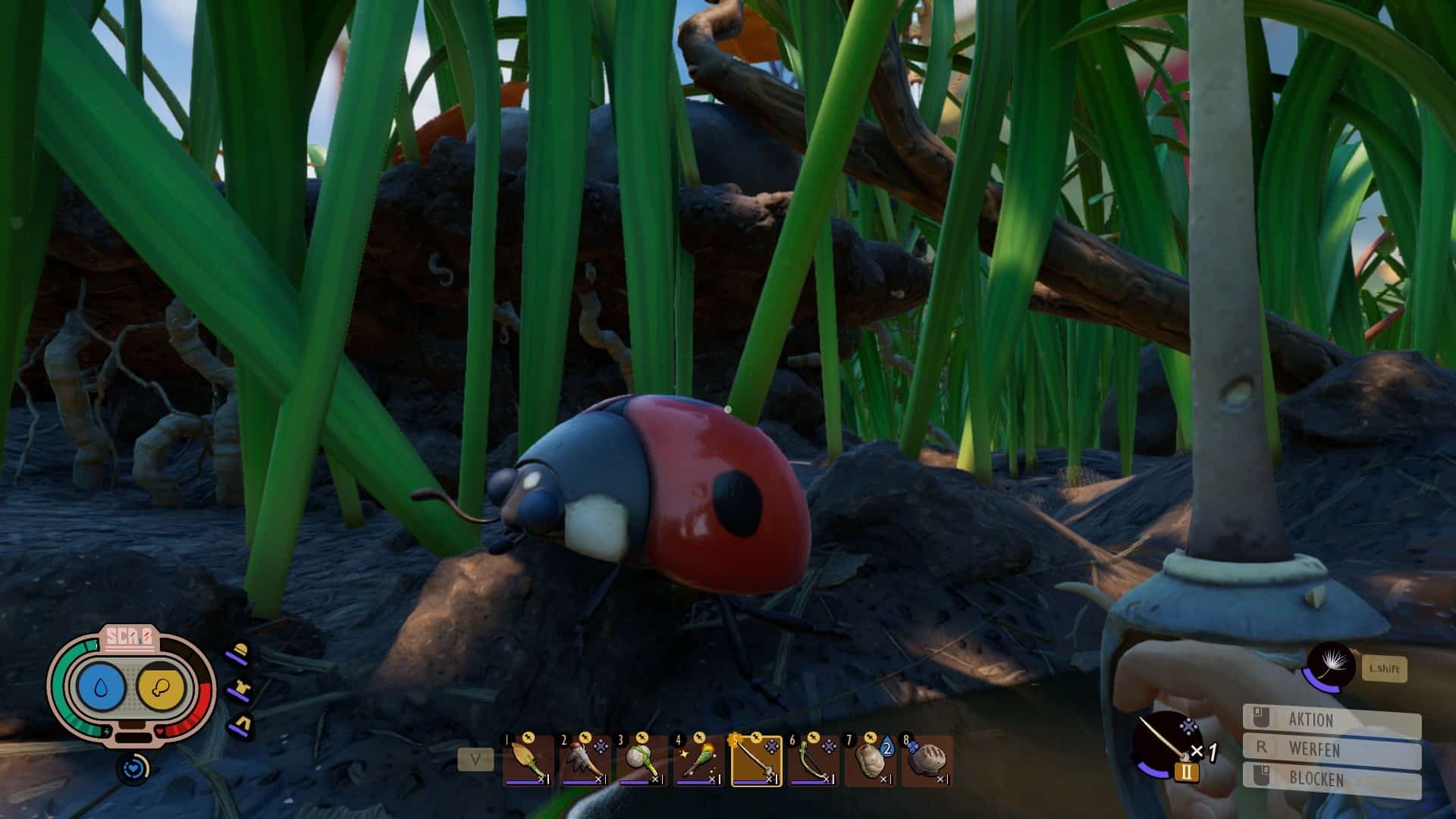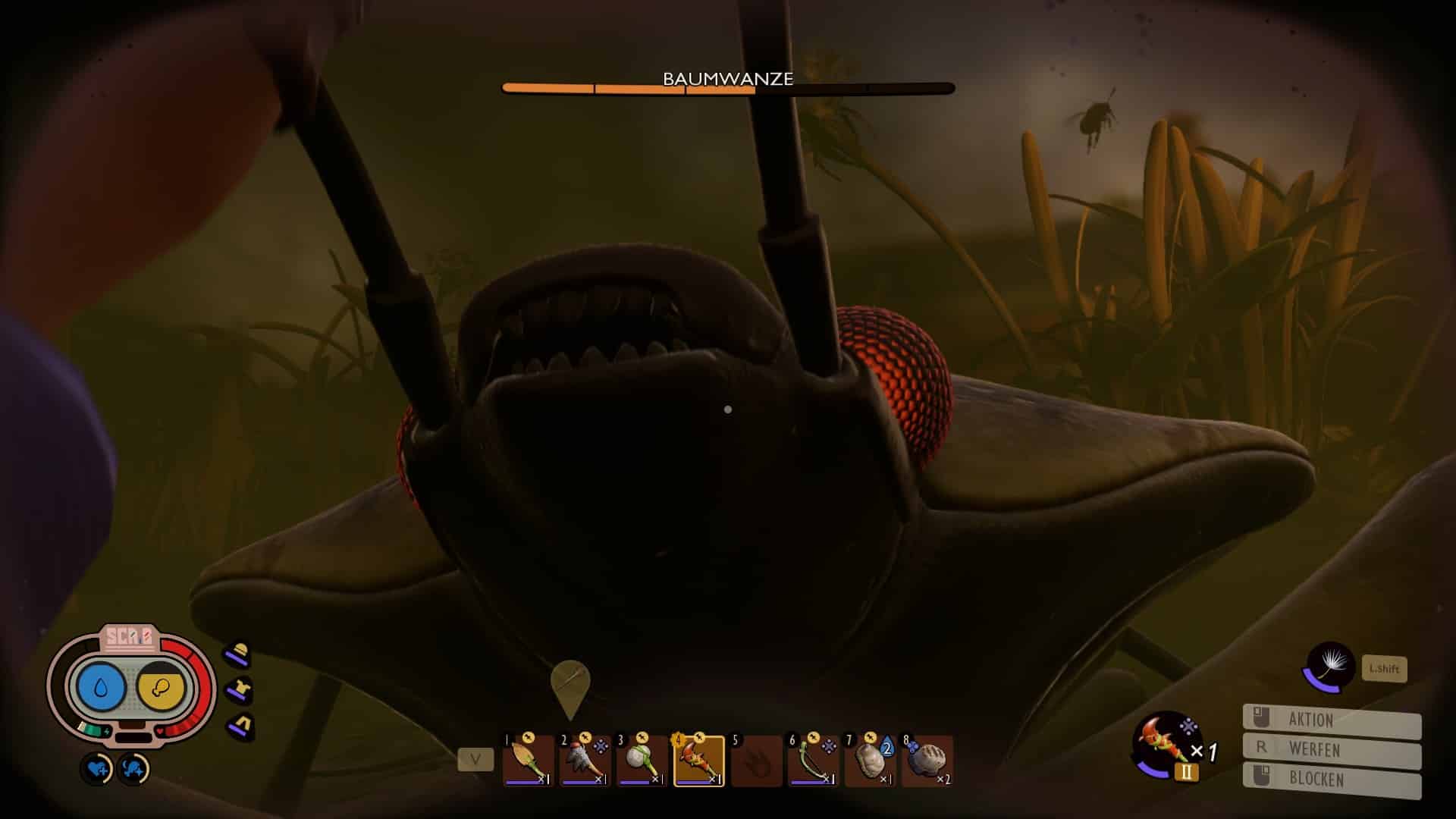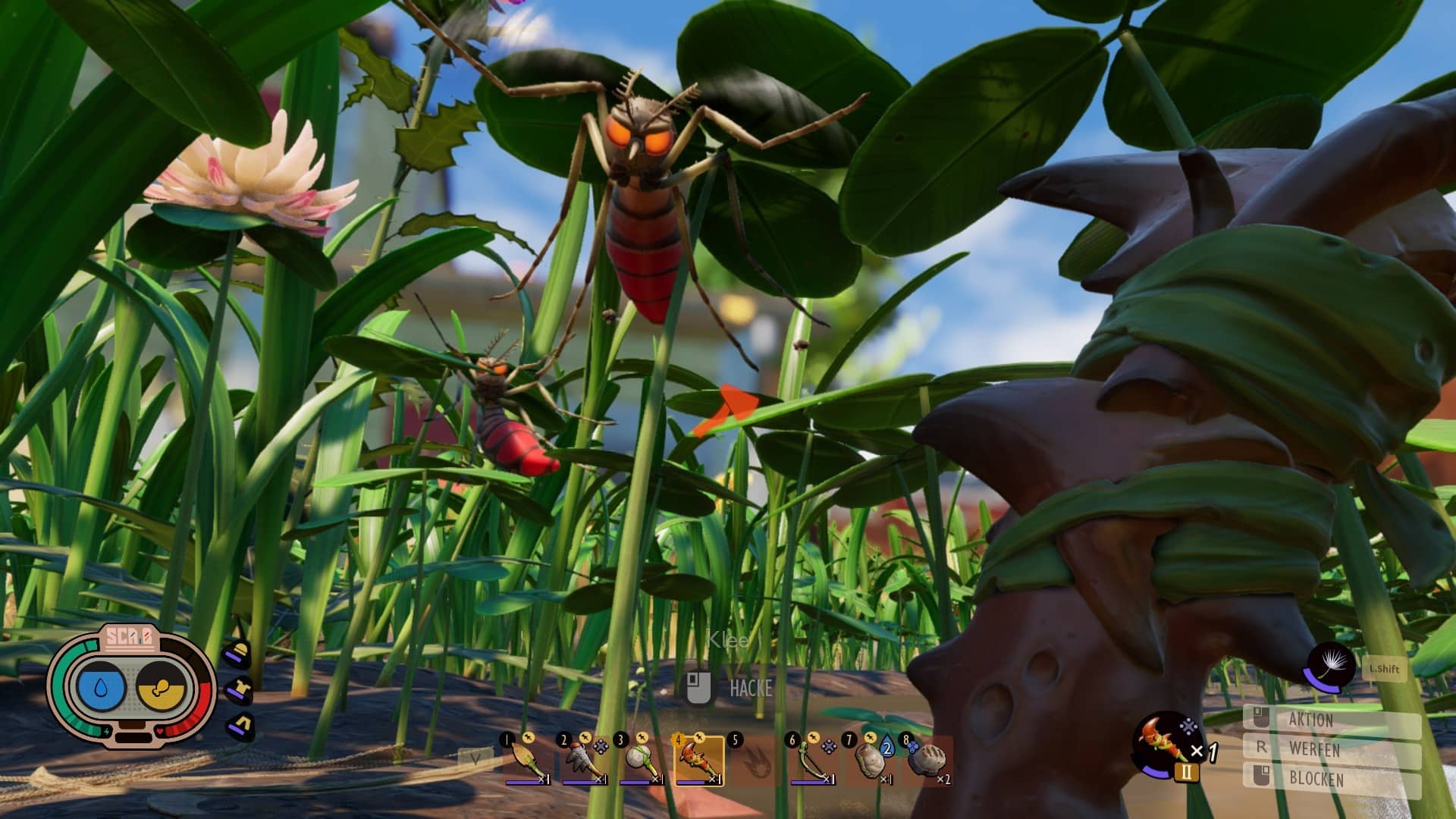Grounded leaves Early Access after two years and presents itself in the test as a complete and creative garden adventure with a tingle factor.
The place: Santa Ana, California, at the headquarters of Obsidian Entertainment. The time: 3:00 pm. The occasion: brainstorming meeting for the new survival role-playing game. Everyone is pulling their hair out.
Apocalypse? Already done it. Underwater world? Still far too fresh. Dinosaurs? Also already exists. Vikings and Nordic mythology? Not again, please. From the corner the intern announces, everyone prepares to roll their eyes. “How about playing in your own backyard as an involuntarily shrunken teenager?”
That”s kind of how we imagine the origin story of Grounded and now we have the salad. Or rather, we run through it. Or we dismantle it. Or we hide in it from creepy spiders. As one of four playable characters, alone or in multiplayer mode with friends, we fight for survival in a nondescript, barely ten-square-metre back garden and search for an answer to the question of what the hell actually brought us here.
Both are a ton of fun and keep us busy for many hours, as evidenced by our Grounded test. In the end, you”ll never again see gardens as peaceful oases of tranquillity, but as the brutal battlefields full of ant corpses that they really are.
Table of Contents
The Rules of Survival
While Grounded may win an award for innovative game design for its unusual setting, it won”t for its implementation of survival mechanics. As usual, we are plagued by hunger and thirst as well as homelessness. So, for lack of alternatives, we drink dirty pond water and chow down on barely satiating mushrooms.
Fearing the dangers of the night, we gather all kinds of grasses and leaves to build a temporary shelter. There we craft our first equipment so that we can get something more solid and above all more hygienic between our teeth. Compared to hopefully non-poisonous mushrooms, weevil fillet suddenly sounds downright luxurious.
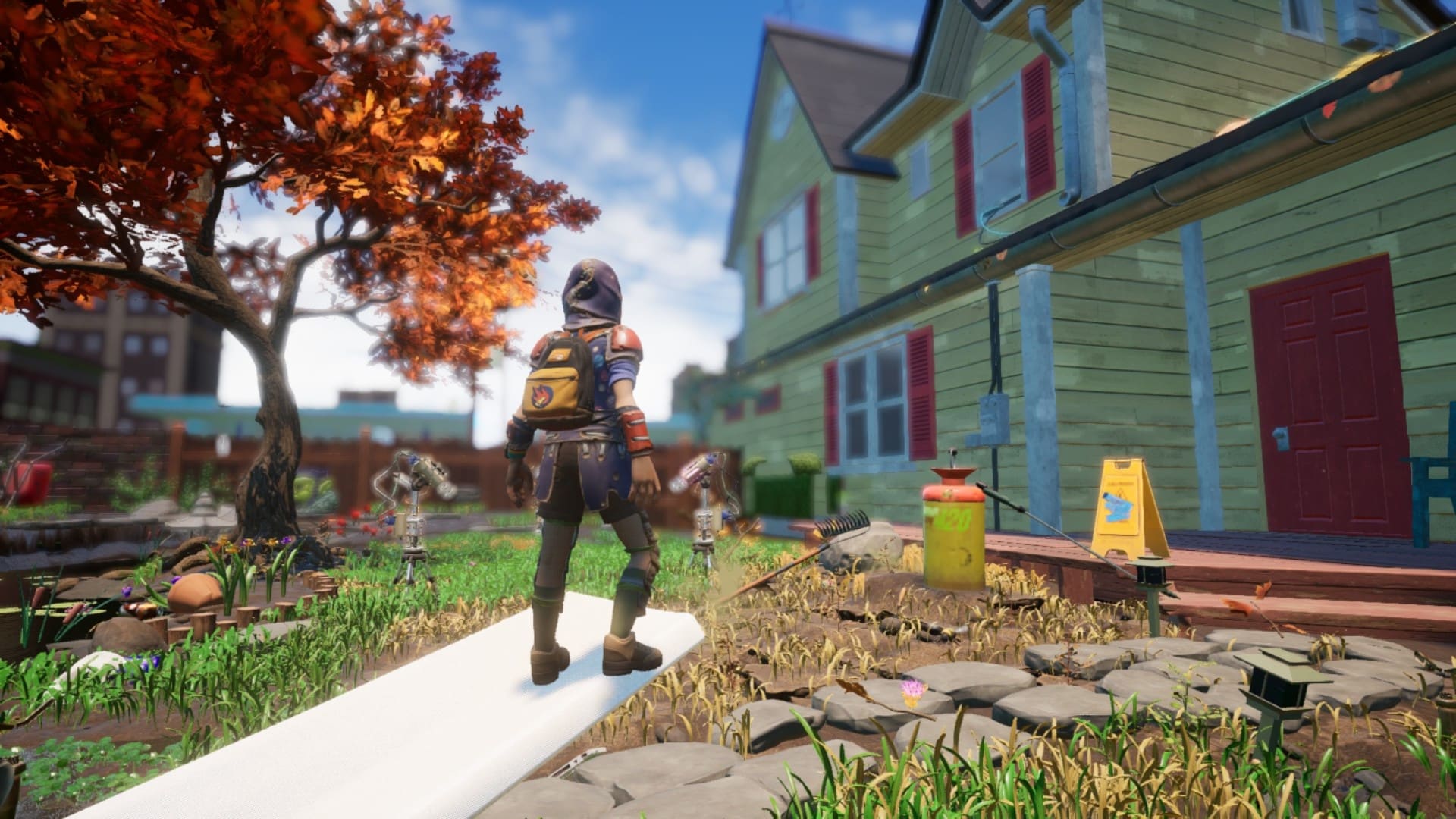
Once we have our basic needs met, we worry about how to get back to normal. Grounded hands us a few simple quest lines that explain piece by piece who we have to thank for our miniature existence. To do this, however, we have to venture out of our reasonably safe spot on earth, and there are dangers waiting.
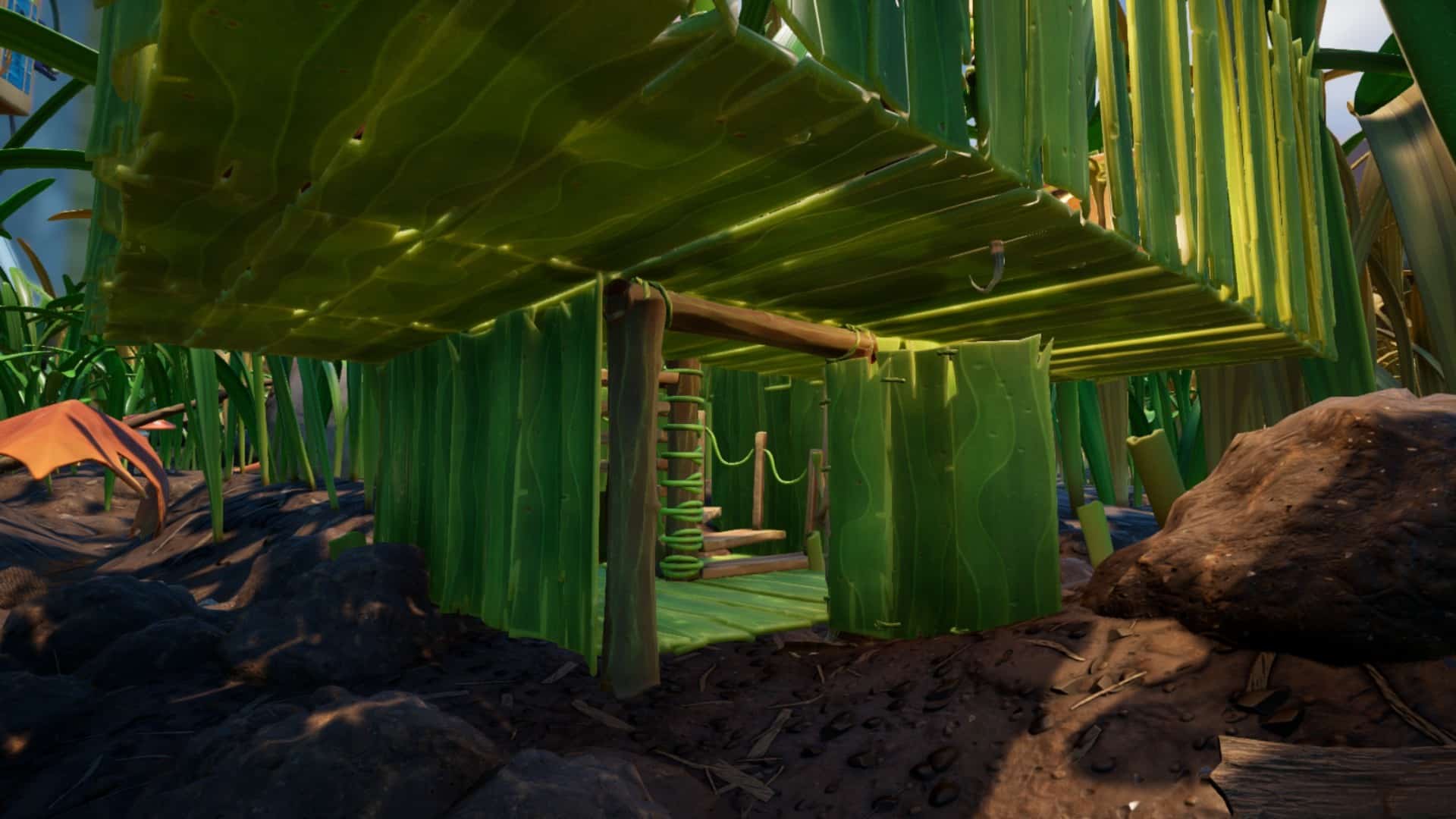
So we improve our equipment and learn to make weapons out of insect parts. This ant leg? It”s a great club. This mosquito proboscis? We”ll make a rapier right out of that. Then we won”t have to be so afraid of the creepy wheel web spiders.
On the one hand, it”s not particularly exciting how closely Grounded follows the usual survival rules. On the other hand, we don”t complain in construction games when we build houses and in shooters when we are handed a gun. Every game genre has a few aspects that belong to it. As long as there are still new ideas and interesting game elements, we can forgive that.
By the way: If the spiders give you more than a slight shiver and you suffer from a full-blown arachnophobia, you can still enjoy Grounded, because the game offers the spiders in different levels of detail. If you”re really creeped out, you can transform the insectivores (who have a preference for shrunken human children in Grounded) into legless and eyeless balls in the menu and still have to run away from them, but at least you won”t faint anymore.
A robotic story
Aside from the battle against the insects runs the simple but thoroughly time-consuming story of Grounded. Over the course of the 20-30 hour campaign, we find mysterious labs populated by hostile robots that provide clues to a scientist who has been experimenting with shrinkage. Could this have something to do with us? Might we find clues here about how to return to normal size? A search for clues begins with numerous stations that lead us through the entire garden.
The story reminds us a lot of Subnautica, where we swim through abandoned research stations to pore over files and listen to tapes. But while futuristic laboratories fit wonderfully into the futuristic Subnautica, they seem somewhat out of place in Grounded. Cutting-edge science in the roots of an oak tree or the branches of a common hedge? Well.
Whoever is afraid of beetles, maggots, larvae or ants, on the other hand, well, they”re out of luck in Grounded. There are no low-detail variants here and you get confrontation therapy for free with Grounded. Besides, they”re just gigantic stink bugs that run after you until you die.
We need an exterminator
Every time we”re about to let out a sigh at Grounded”s somewhat uninspired, old-school survival mechanics, a new insect comes around the corner. We are shocked out of breath, and it”s hard to sigh without breath. So we leave it and rather find out:
- how dangerous the new creature is
- So whether to run or fight
- how we want to proceed in case of a fight and
- what is in it for us if we win the duel
The labs are indeed challenging dungeons that are fun and challenging to explore, but we”re still not really interested in the story. We are much more interested in clicking through the dialogues and waiting eagerly to see what they will unlock for us next. Because what”s really exciting is rather the game world and its inhabitants, to which we quickly want to return.
Really every enemy in Grounded carries valuable loot and so everything must be defeated at least once. Of course, a flying bee fights completely differently than a burrowing ant lion and that”s why the battles in Grounded are varied and refreshing. Sometimes we use bow and arrow, sometimes we use the ant club and sometimes we quickly stab our opponents with the rapier. Standing on a cloverleaf, we shoot down flies in rows and feel like Legolas. Or like Indiana Jones when we”re on a reconnaissance mission in the ant hole.
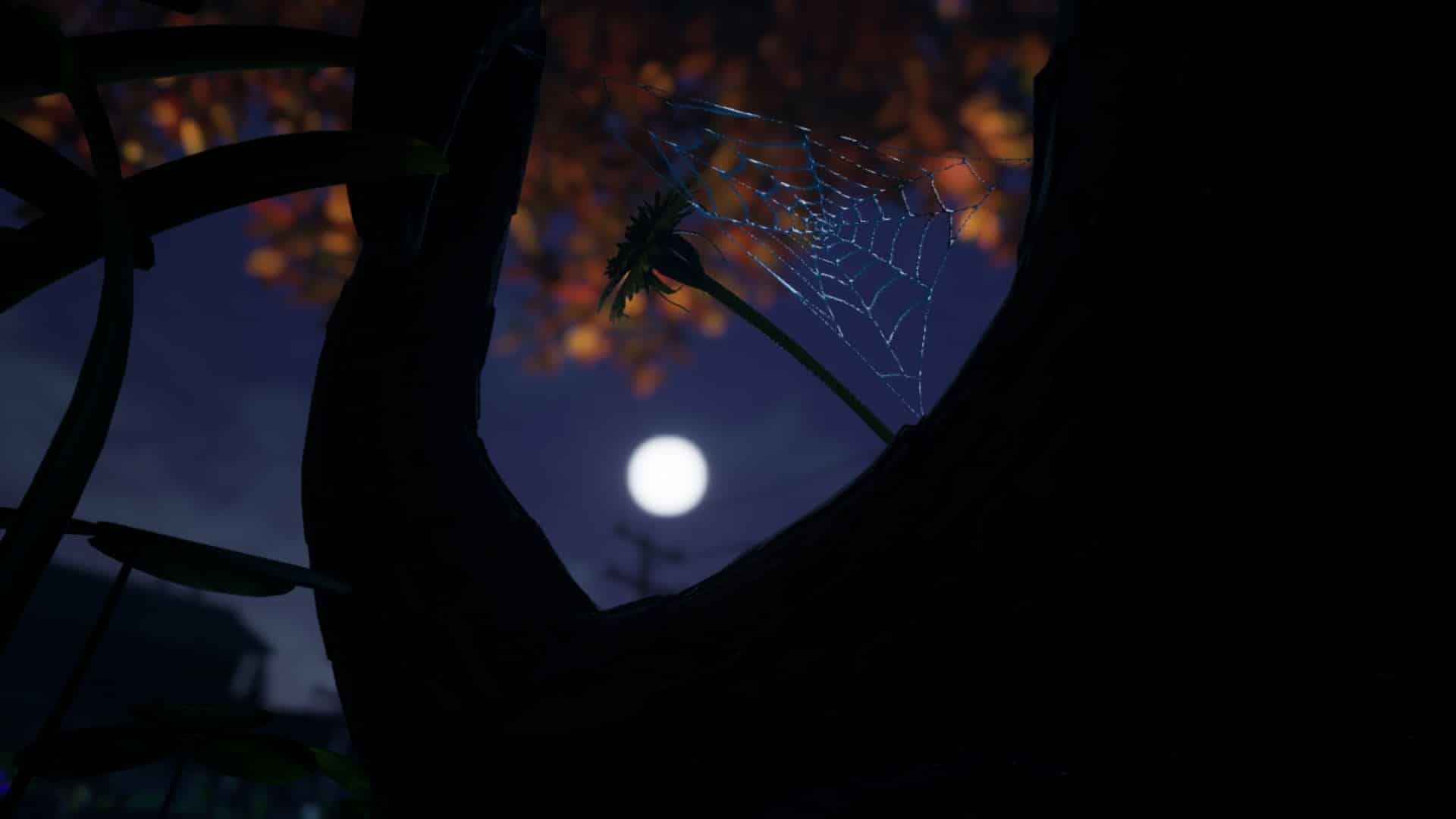
By the way, the insects look great and have detailed and lifelike models. As usual for insects, they populate our garden universe en masse and so the game world is incredibly lively. There are ants everywhere and sometimes they even visit us at home to rob us of our food. If we catch them at it, they look us innocently in the eye and scurry away.
Apart from spiders and insects, however, there are quite few creatures in our garden. We think more could have been done here to make the most of the exciting setting. Where are the earthworms, the snails, or a boss fight against a rat? There are too many variations of ants and larvae for our taste, which eventually lose their appeal.
A robotic story
Aside from the battle against the insects runs the simple but thoroughly time-consuming story of Grounded. Over the course of the 20-30 hour campaign, we find mysterious labs populated by hostile robots that provide clues to a scientist who has been experimenting with shrinkage. Could this have something to do with us? Might we find clues here about how to return to normal size? A search for clues begins with numerous stations that lead us through the entire garden.
The story reminds us a lot of Subnautica, where we swim through abandoned research stations to pore over files and listen to tapes. But while futuristic laboratories fit wonderfully into the futuristic Subnautica, they seem somewhat out of place in Grounded. Cutting-edge science in the roots of an oak tree or the branches of a common hedge? Well.
The whole world in a small garden
At least, home gardens don”t necessarily stand for adrenaline rushes, grand adventures and varied landscapes. After Grounded, we wonder if that”s because we”ve never looked closely enough. Because there is plenty to experience, explore and look at in our humble garden. One reason for this is the immense size of the game world. Even after many hours, the game still offers us new areas to explore.
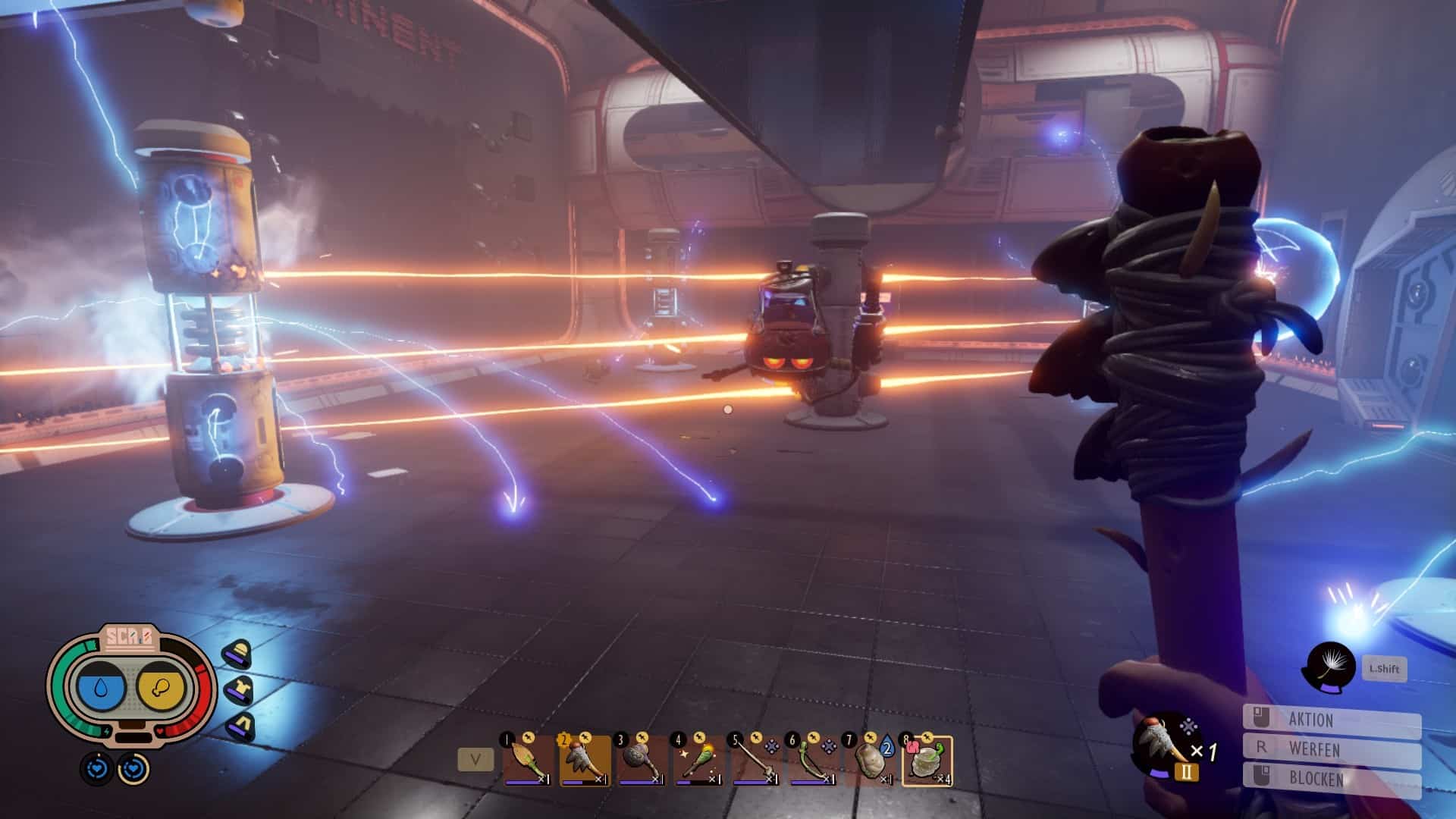
Luckily, our garden is not only large – by our standards – but also versatile. In the gigantic hedge, we swing from vine to vine as if we were in the deepest jungle. In the wide sandpit, the hot sun gets to us and we have to look for shade as if we were in the Sahara. In the small house pond, diving feels like diving in the Mariana Trench and the koi carp becomes a great white shark. As you can see, Grounded has no shortage of varied biomes.
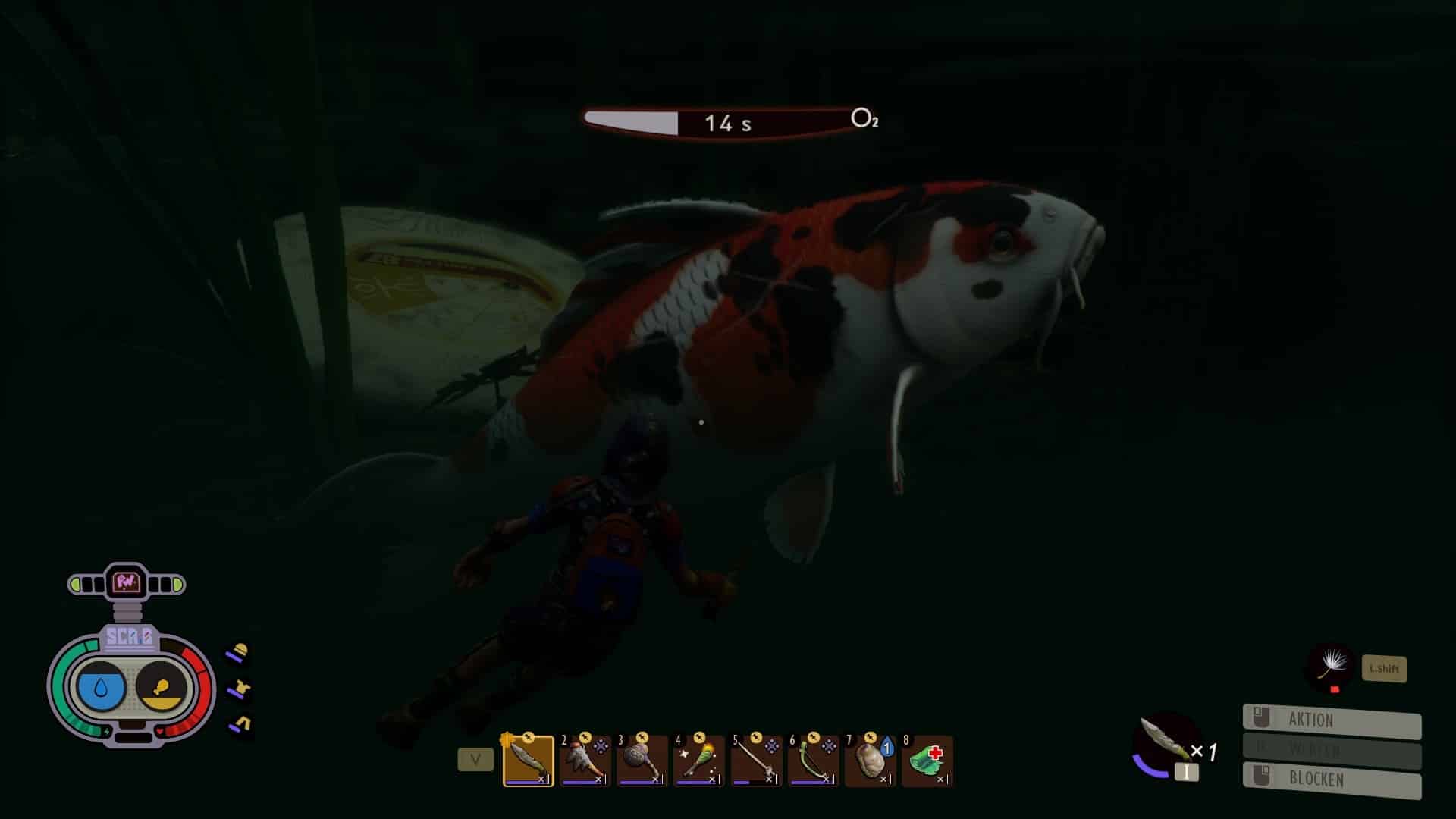
Because Grounded also offers a lot visually, exploring the game world becomes a highlight for us. If only to find out which completely different landscape still fits into the garden setting, which actually seems so limited. We were particularly taken with the picnic table, from which we have a brilliant panoramic view of our realm. If we stand at the edge of the table, the picture is perfect: Assassin”s Creed Backyard. Wasn”t this one of the settings announced by Ubisoft for the series in the coming years? No? Too bad actually.
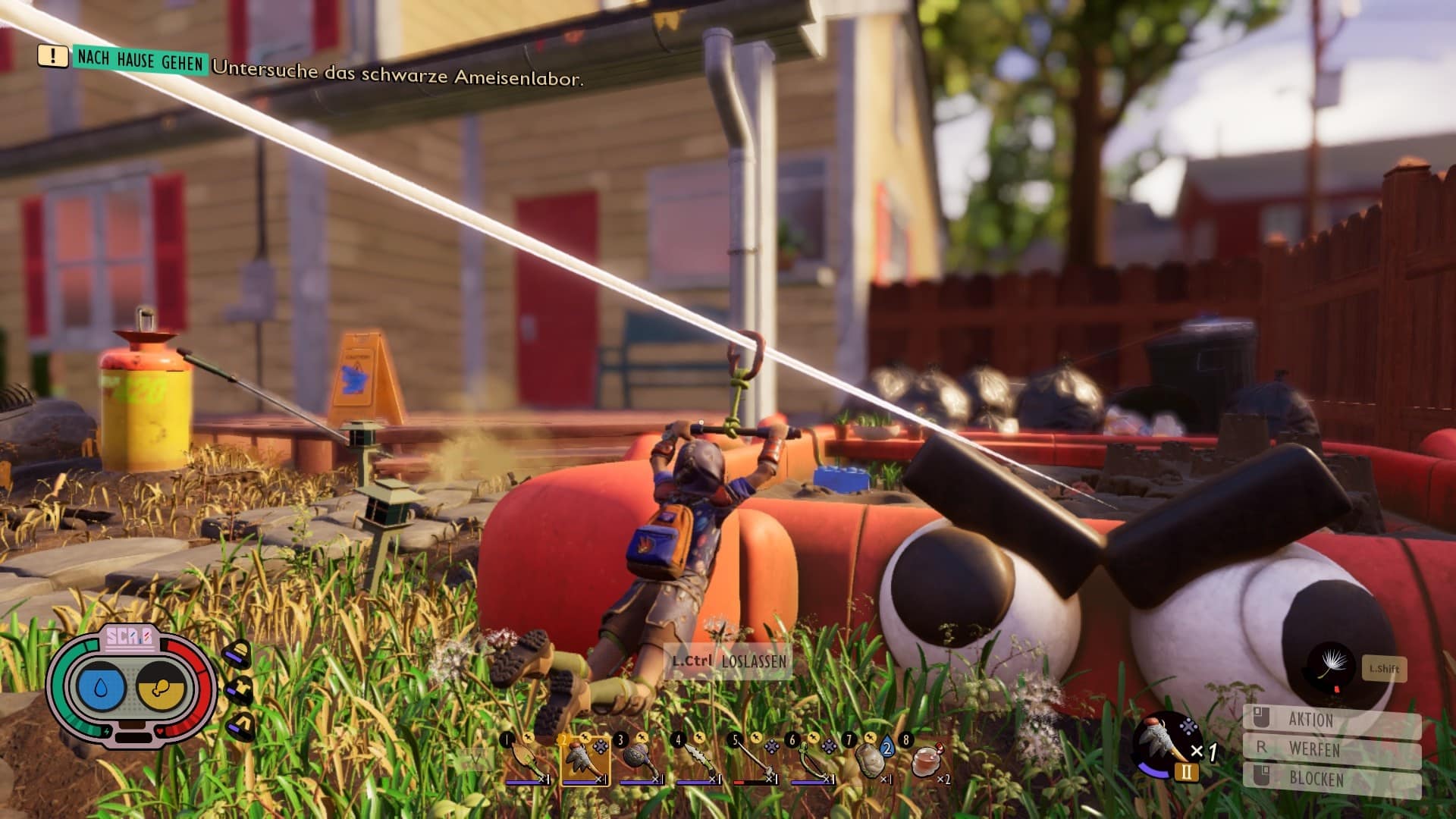
In the end, the exciting garden world and the realistic insects make Grounded a survival pleasure. The somewhat ordinary mechanics and the run-of-the-mill story no longer bother us, but form a successful framework in which we can explore our garden. Grounded definitely sets the focus right and gets as much out of its unusual setting as possible – except for the earthworm, which we would have liked to have seen.
Editorial conclusion
I”ve tested quite a few survival games this year for GlobalESportNews and sometimes I get a bit tired of the eternal resource gathering and satisfying hunger and thirst. It doesn”t help if the systems are very similar from game to game. That was certainly the case with Grounded.
On the other hand, the game also excited me. You have to manage to get so much out of a small garden. From time to time you really forget where you are while playing because the game world is so epic and beautiful.
Just like the insects and spiders that populate the world. You know that feeling when you think about lice and your head starts itching right away? I had that all the time while playing, because the creepy-crawlies look and act so lifelike. That”s why Grounded convinced me despite the lack of a story and I”m looking forward to spending many more hours adventuring in my garden. Maybe I”ll finally be able to take on the evil wolf spider one day.

